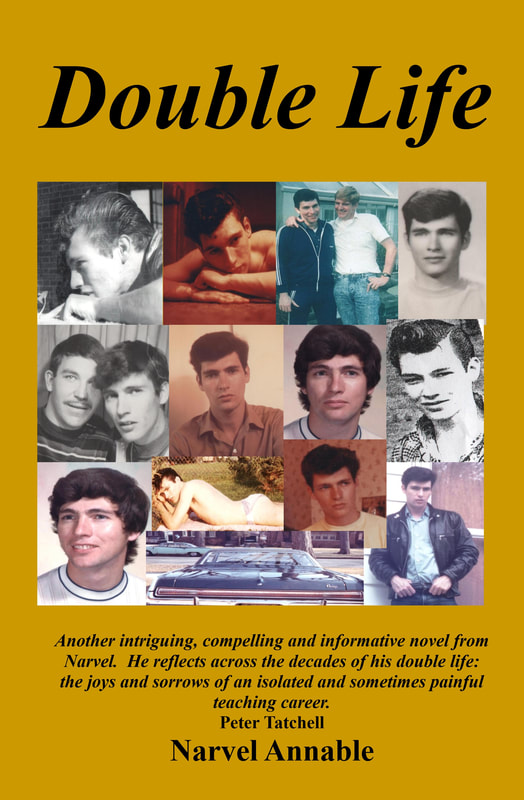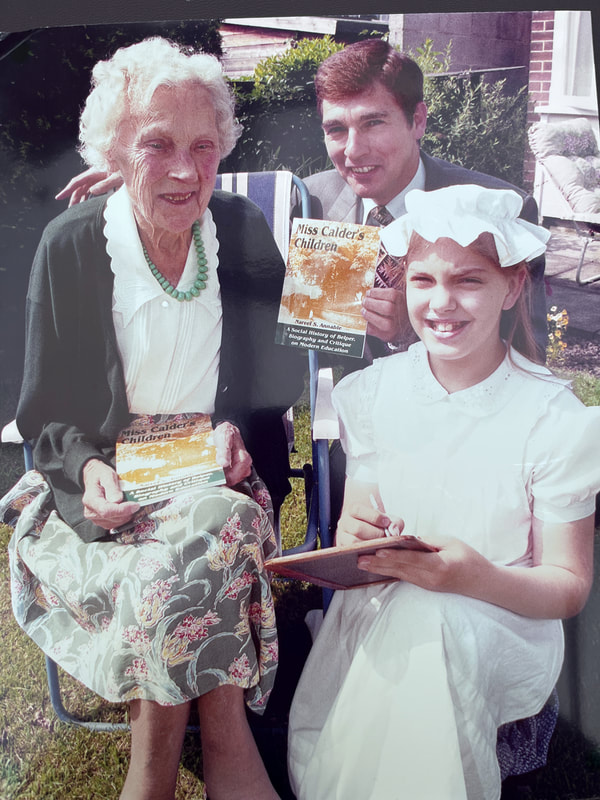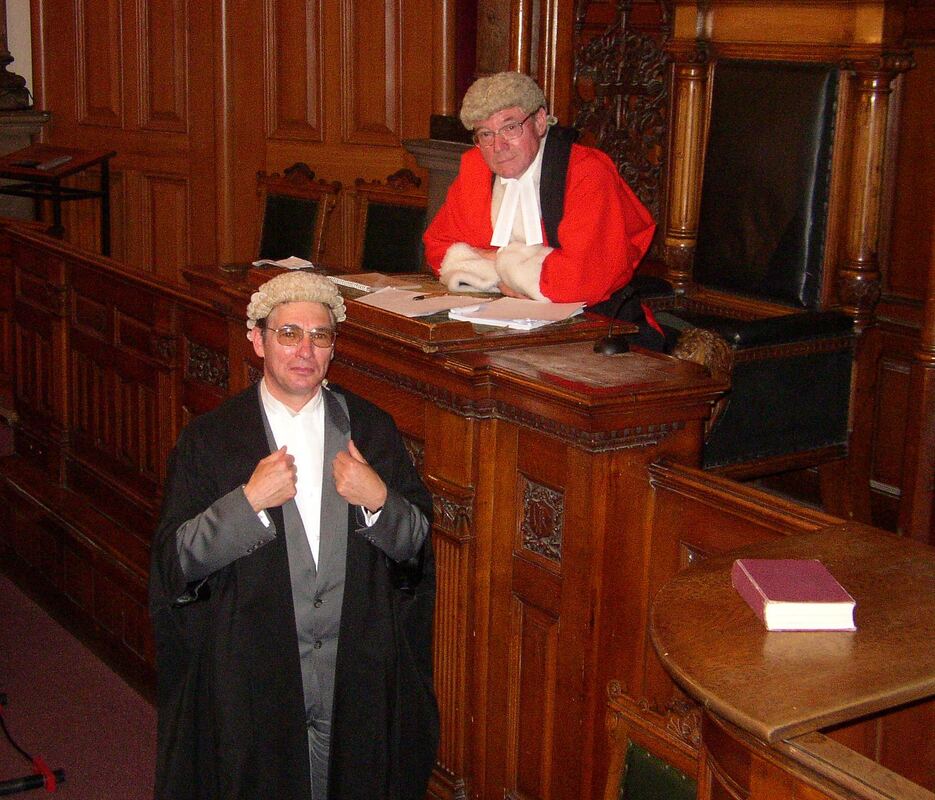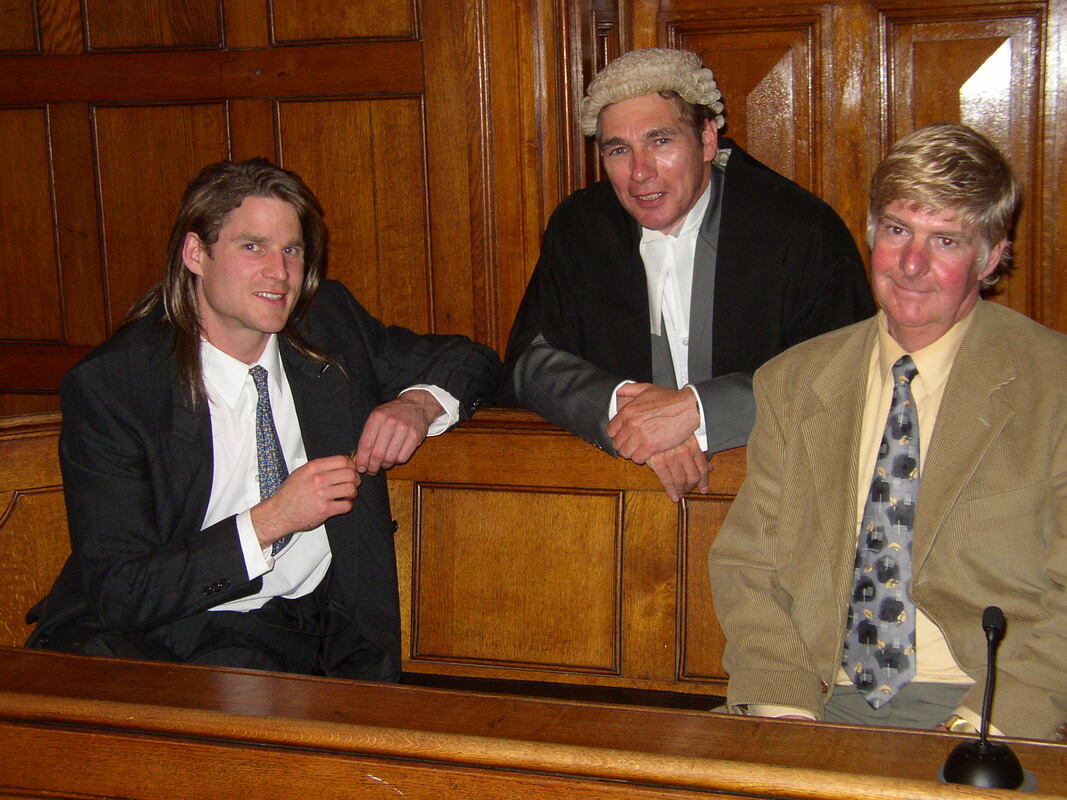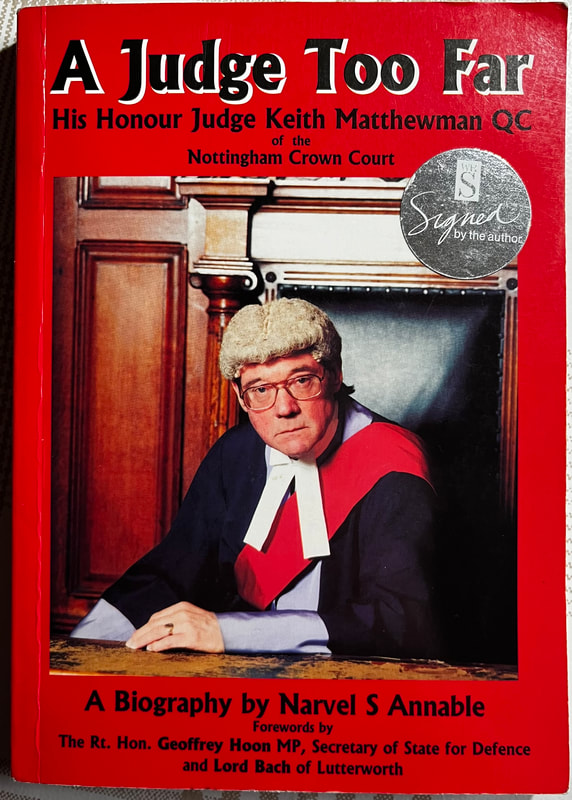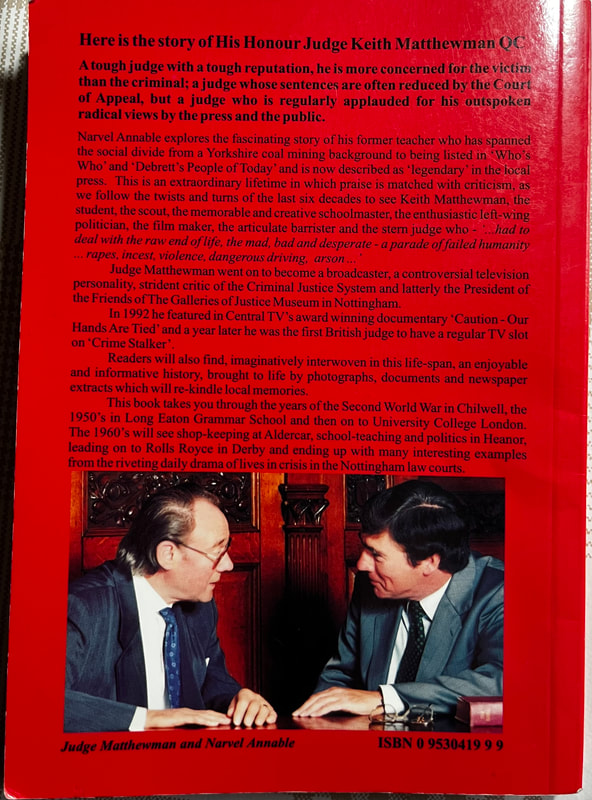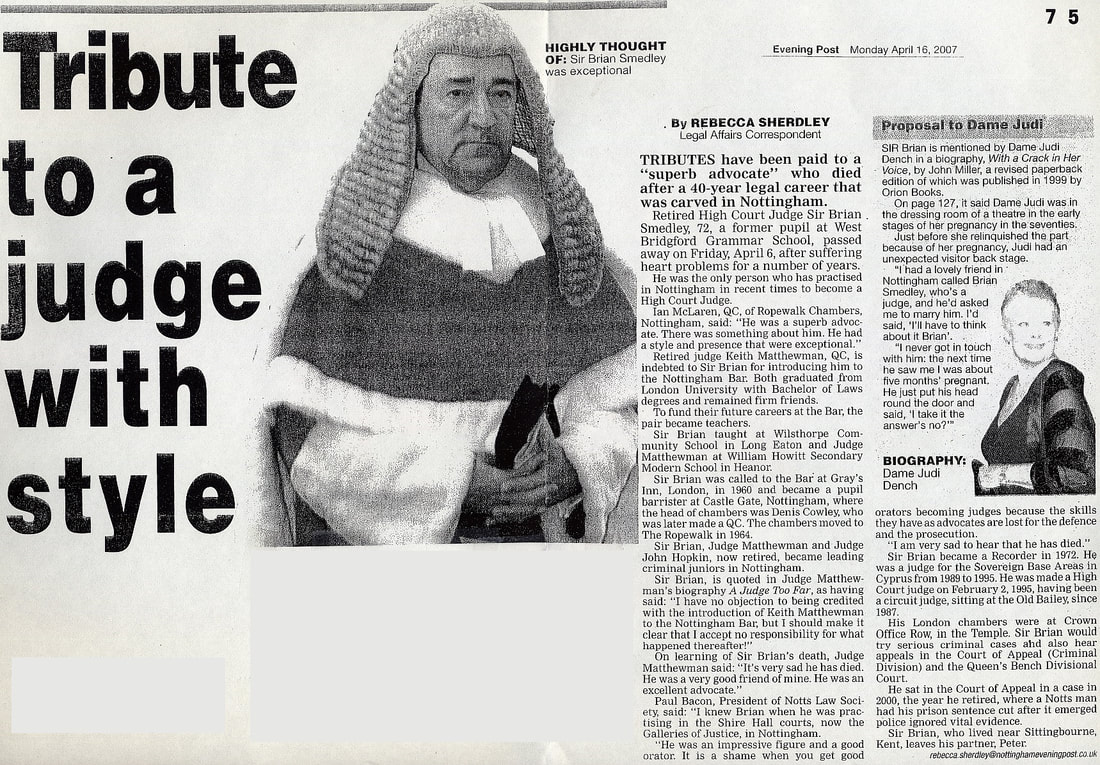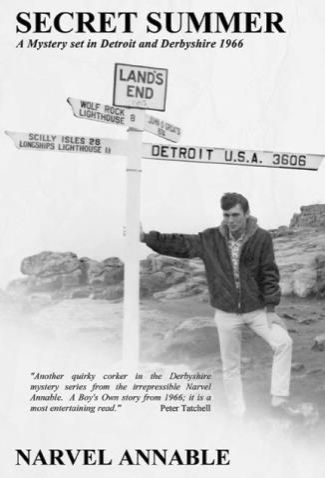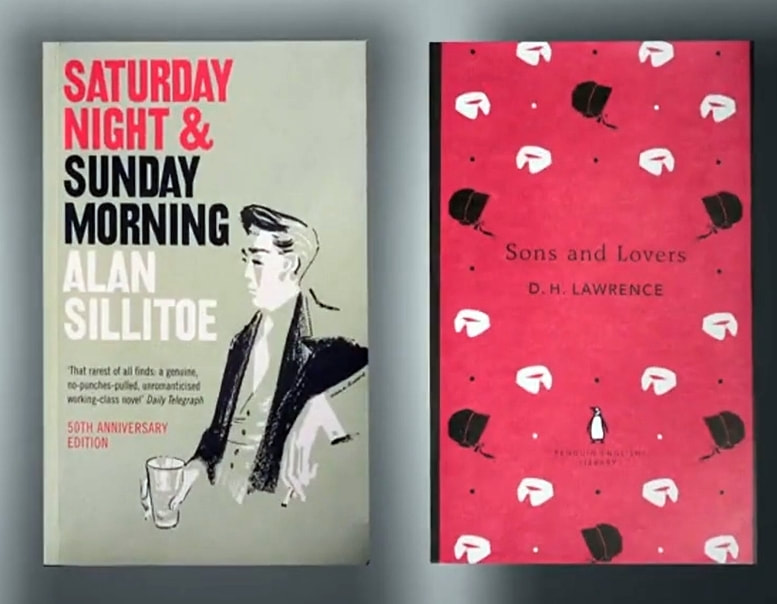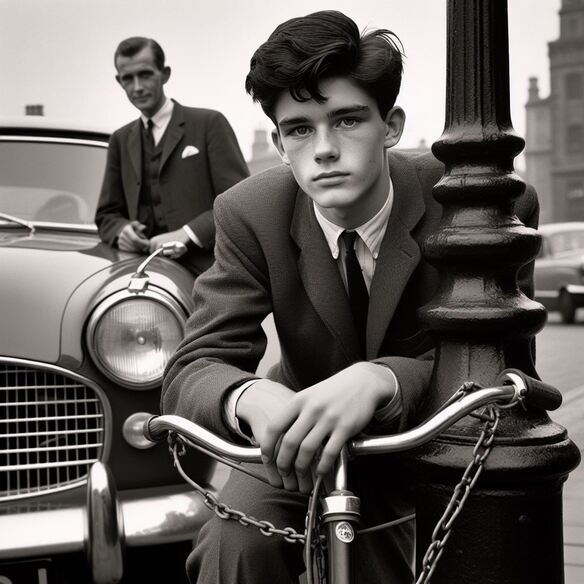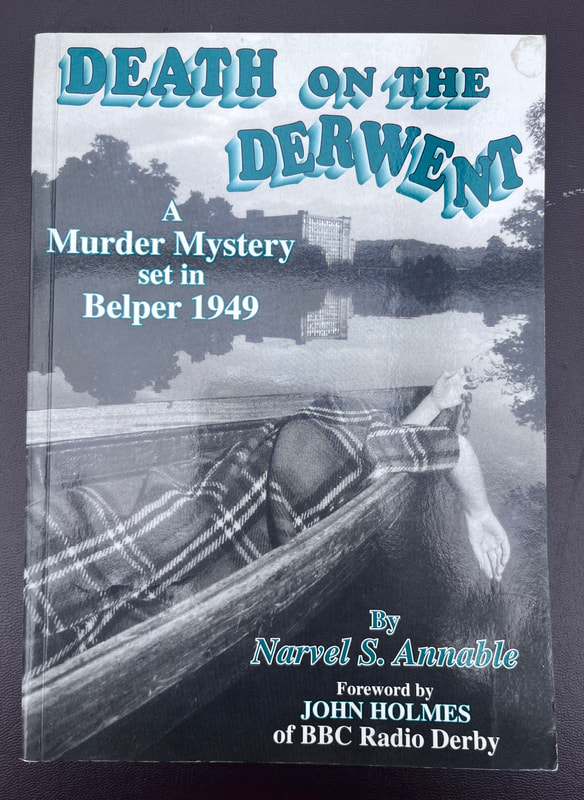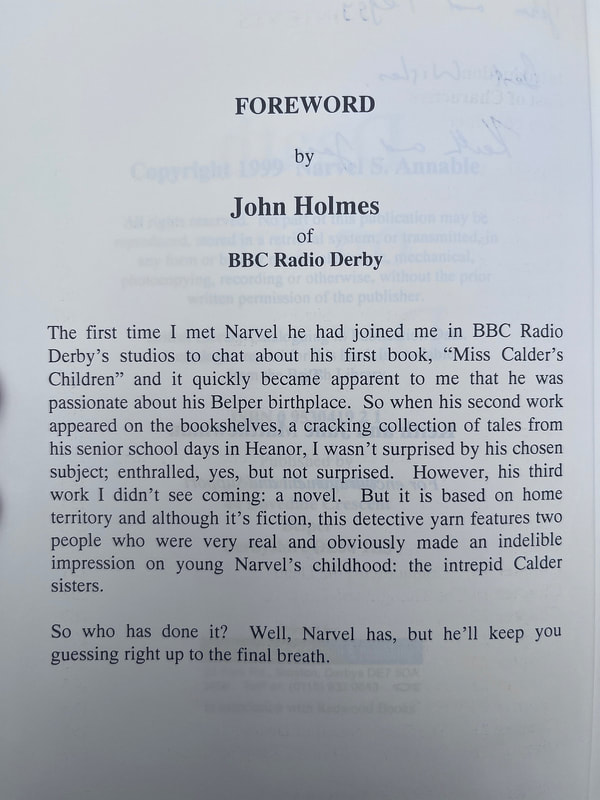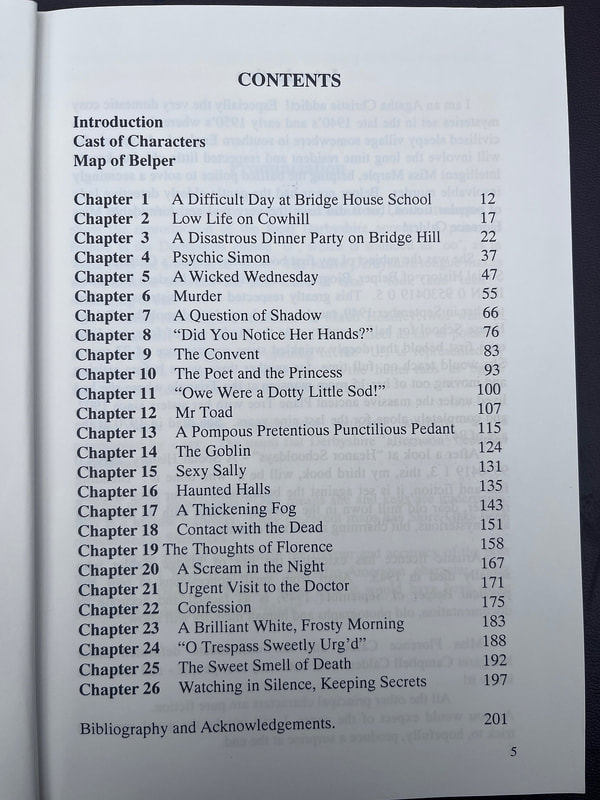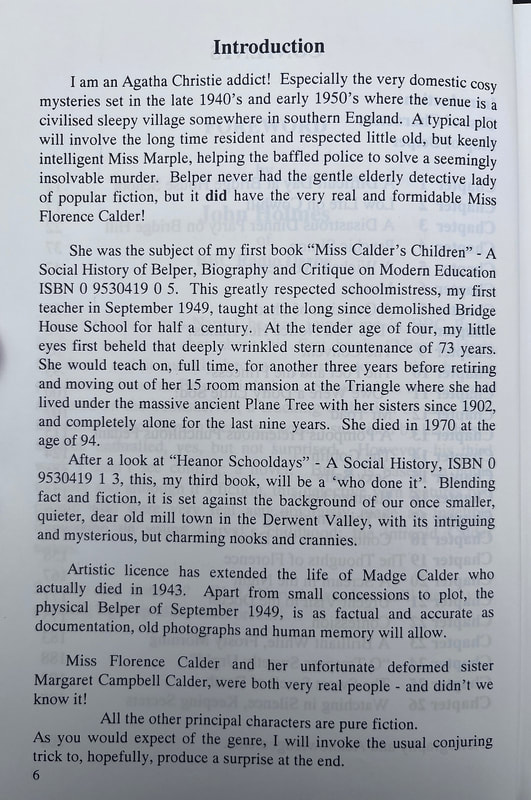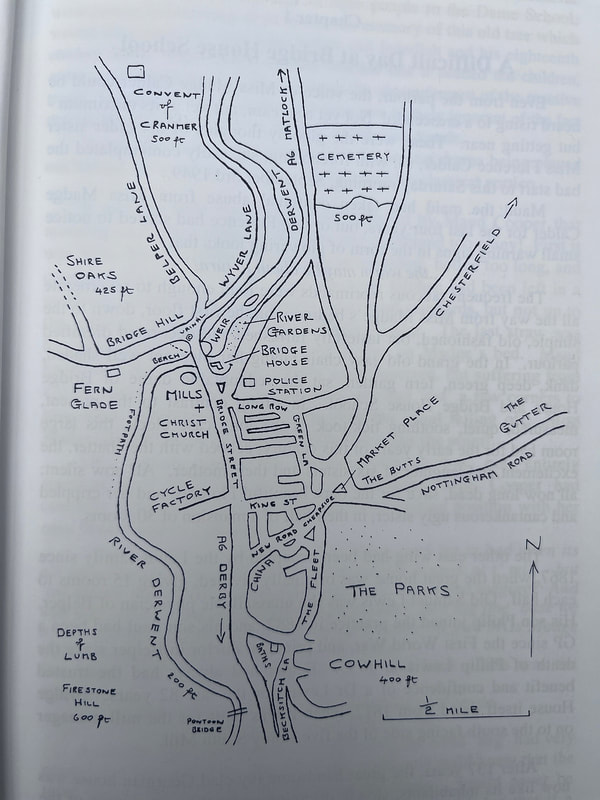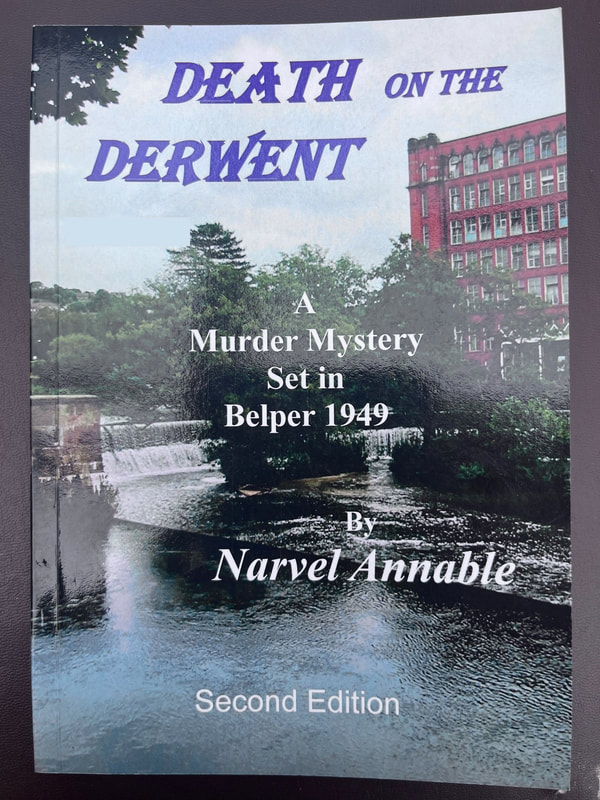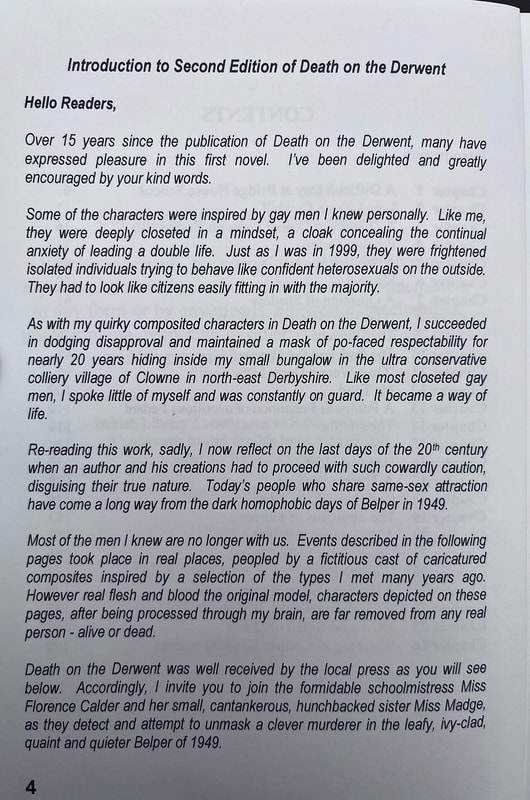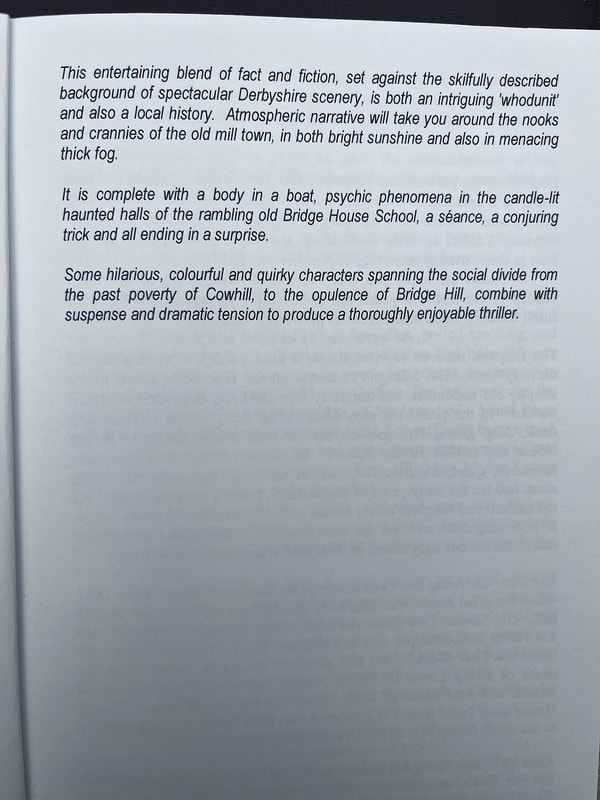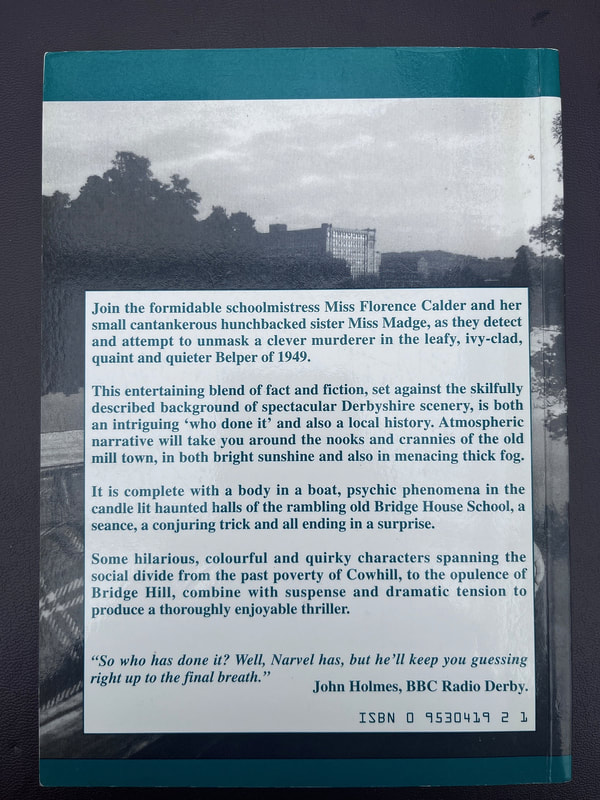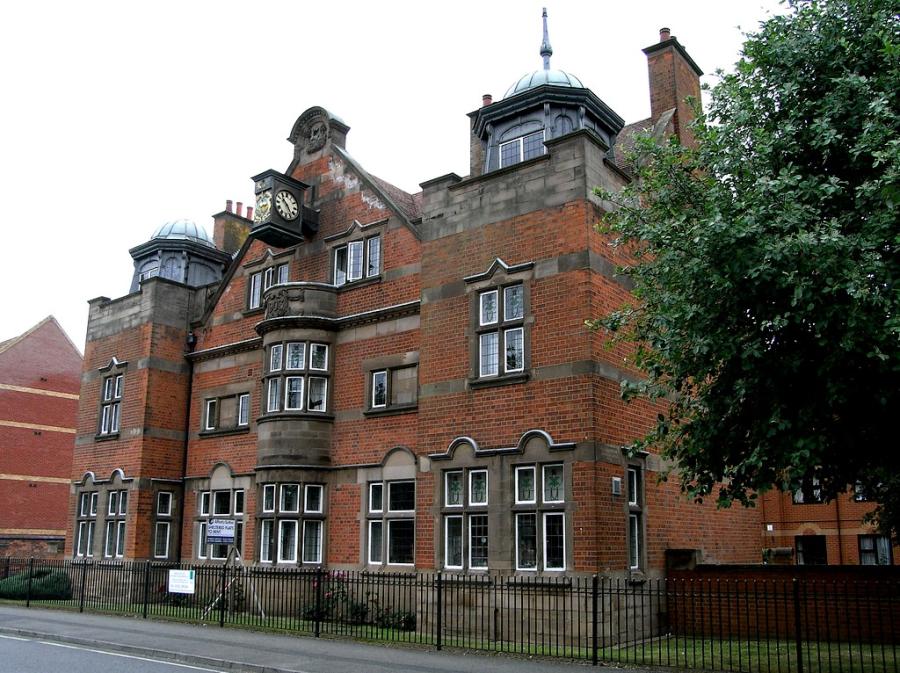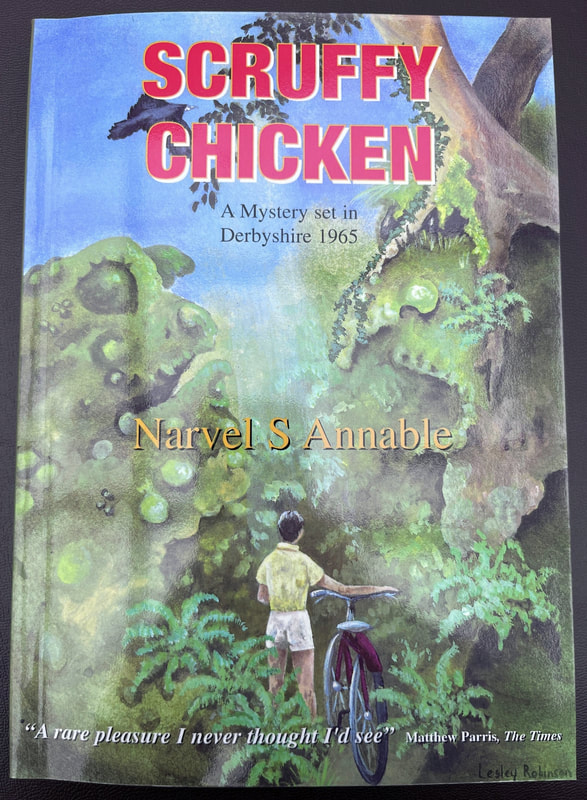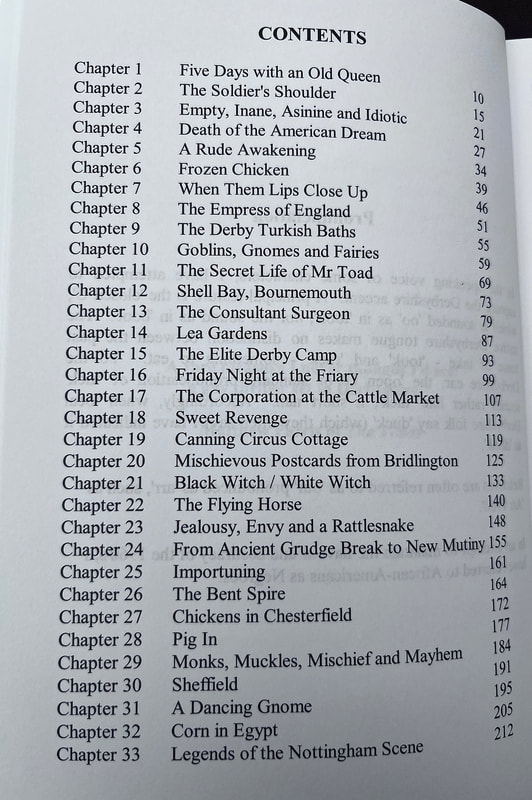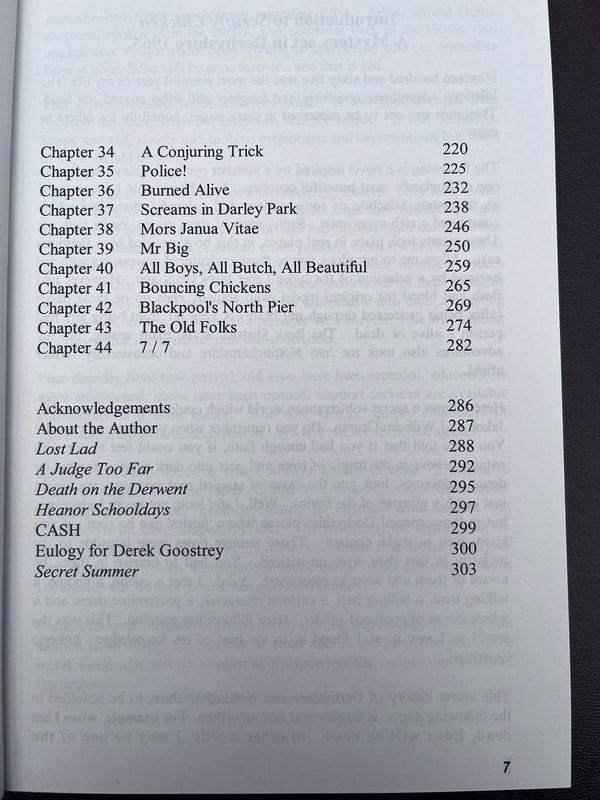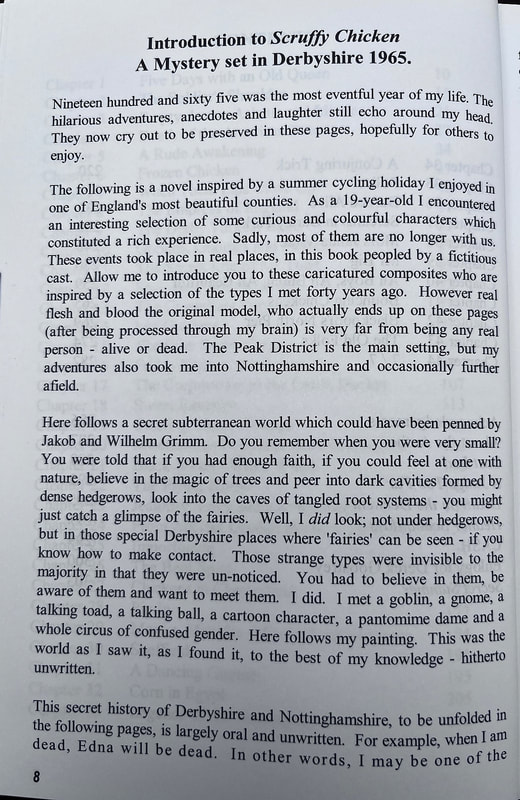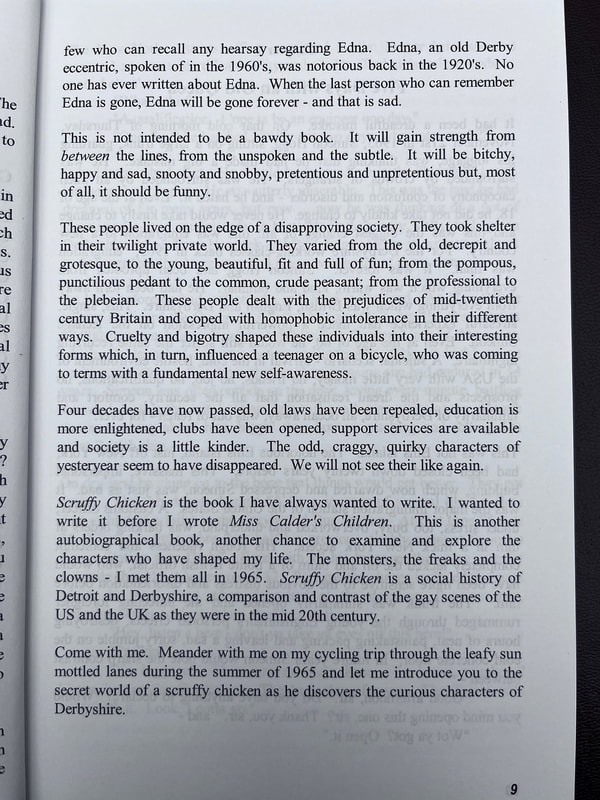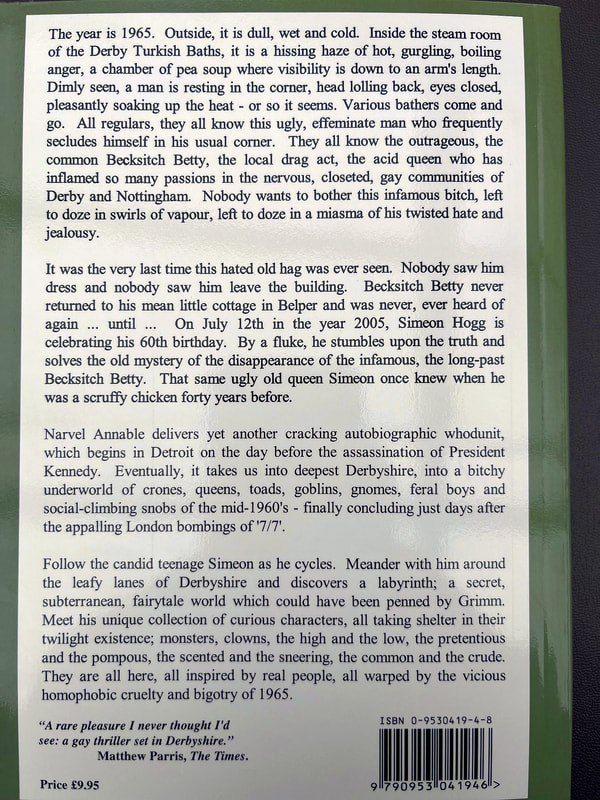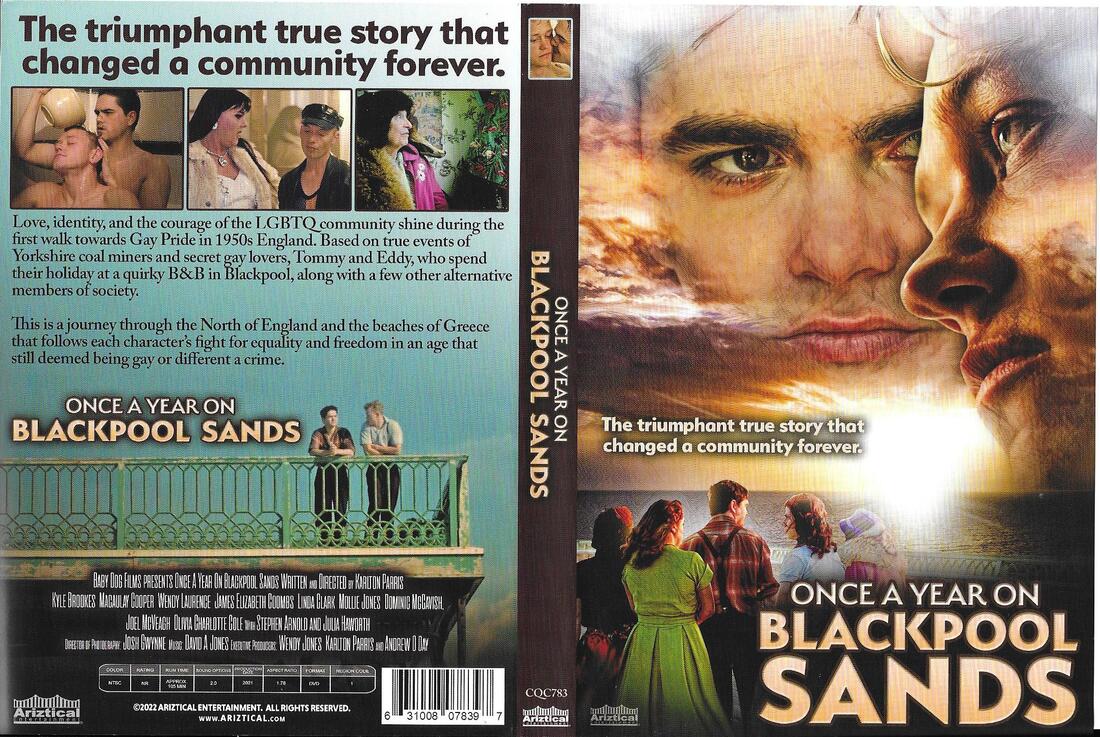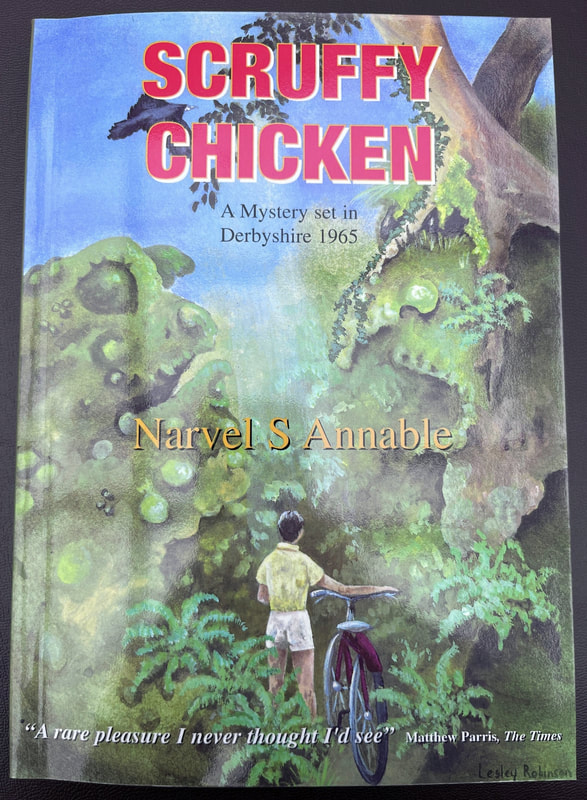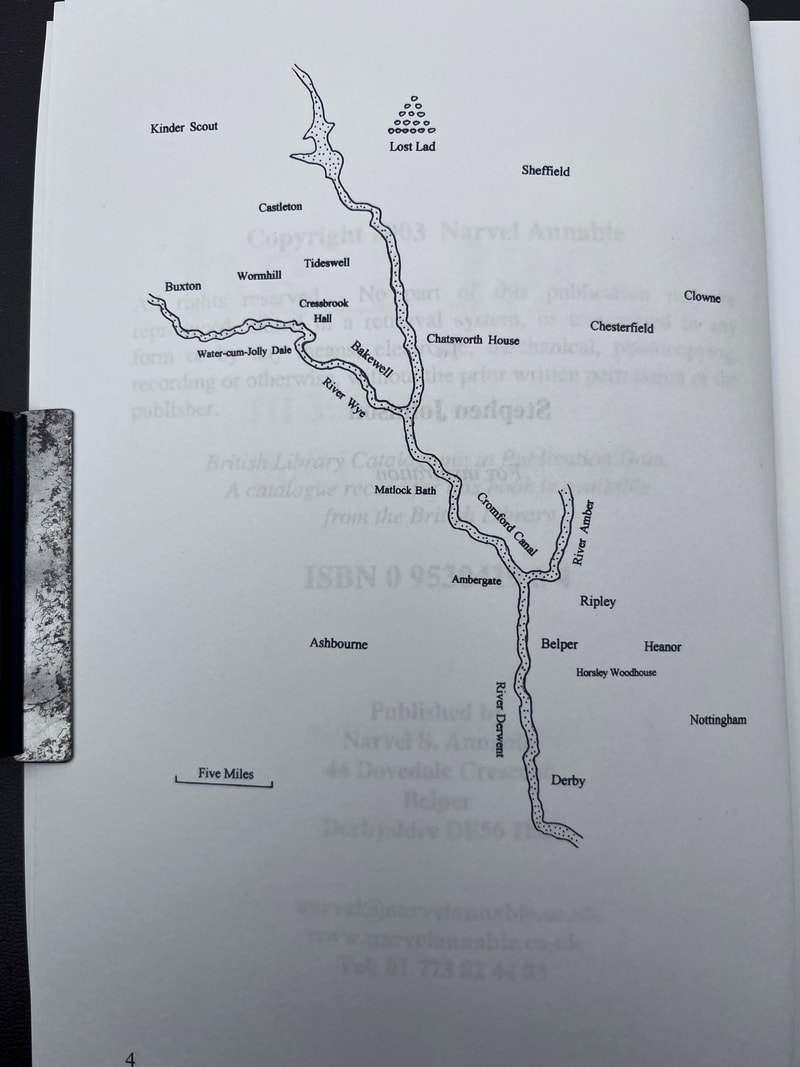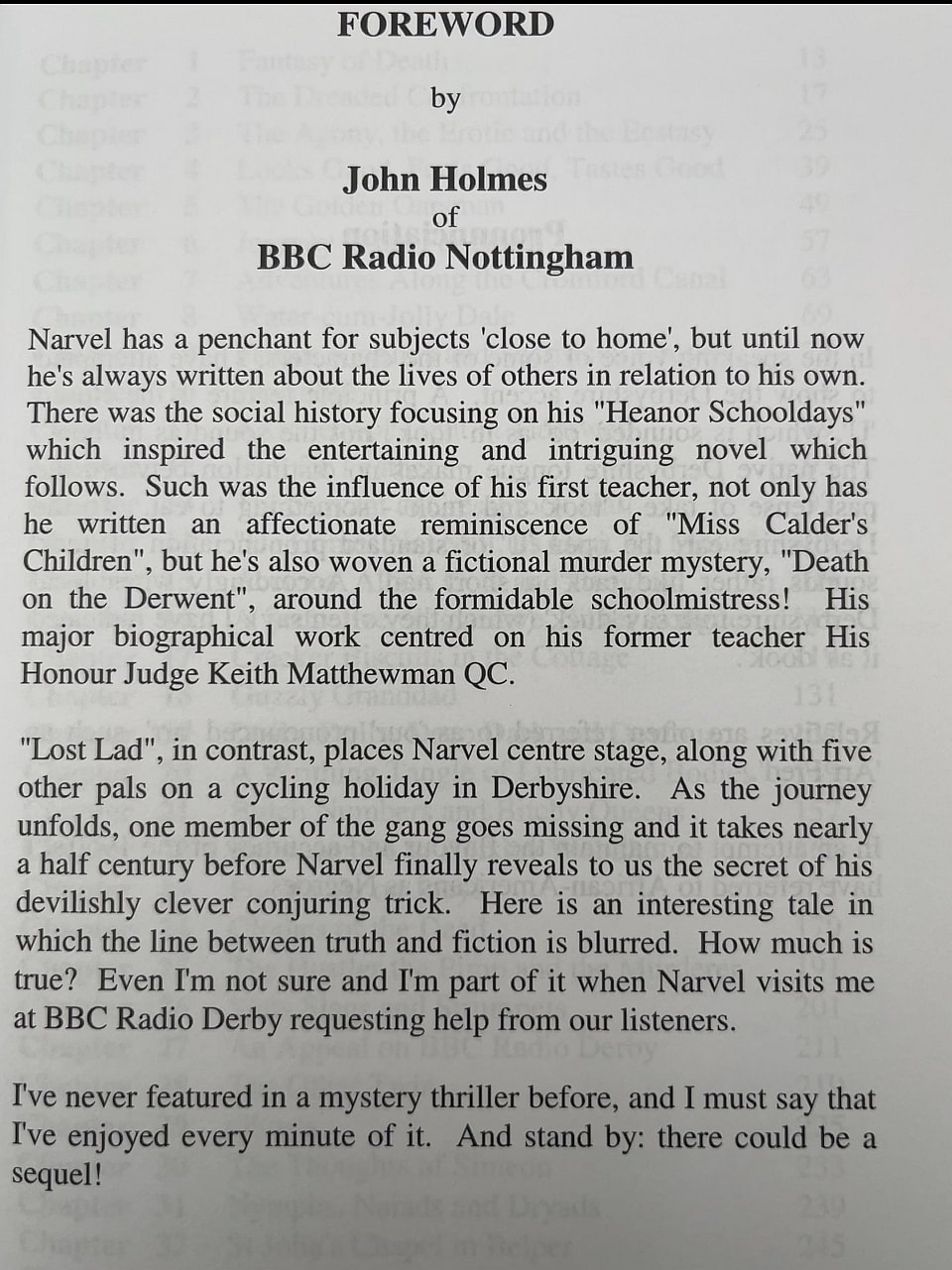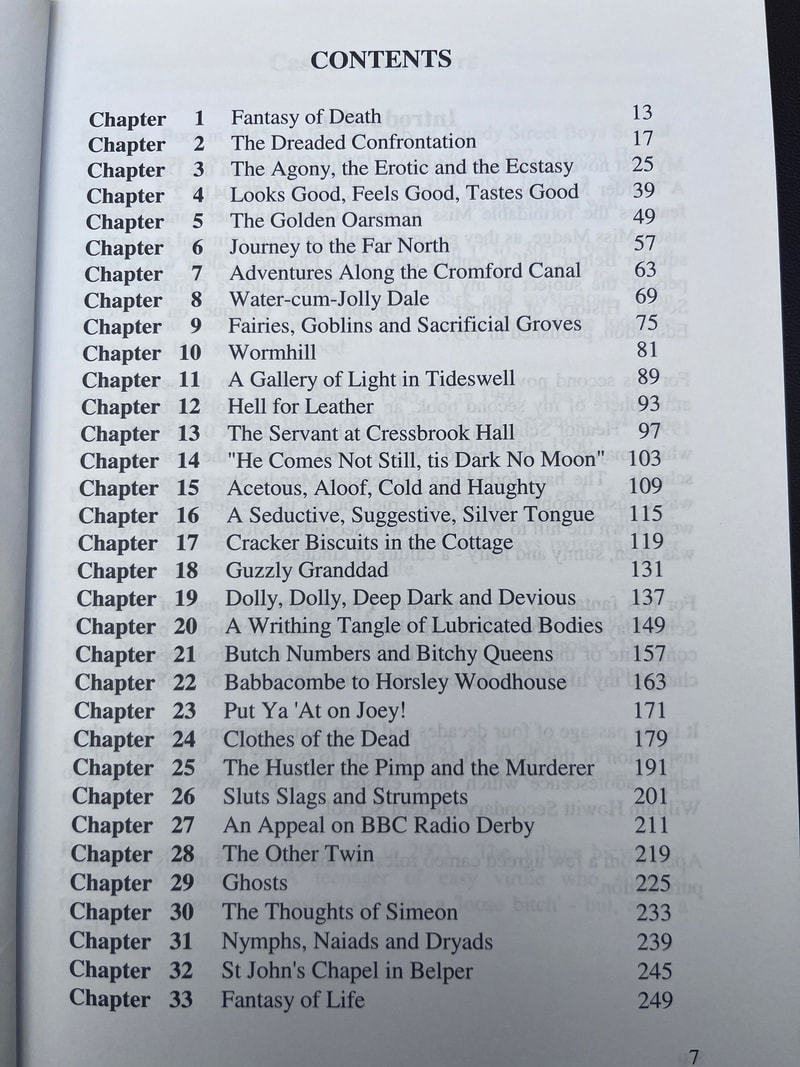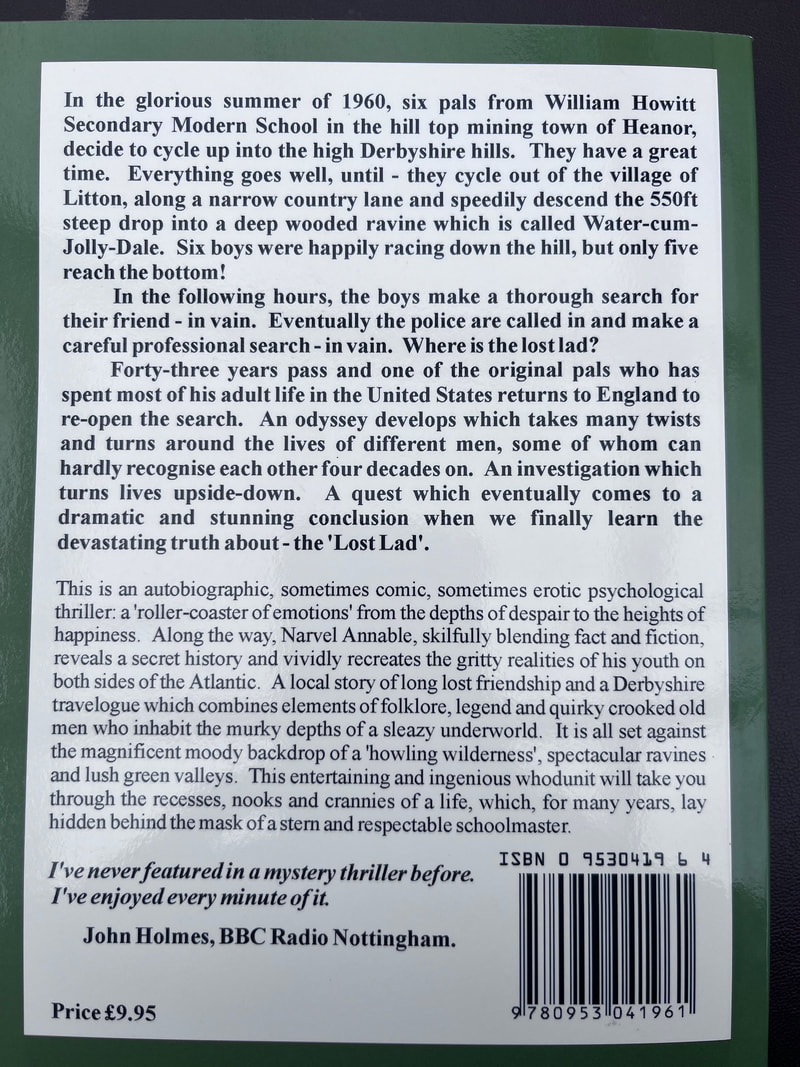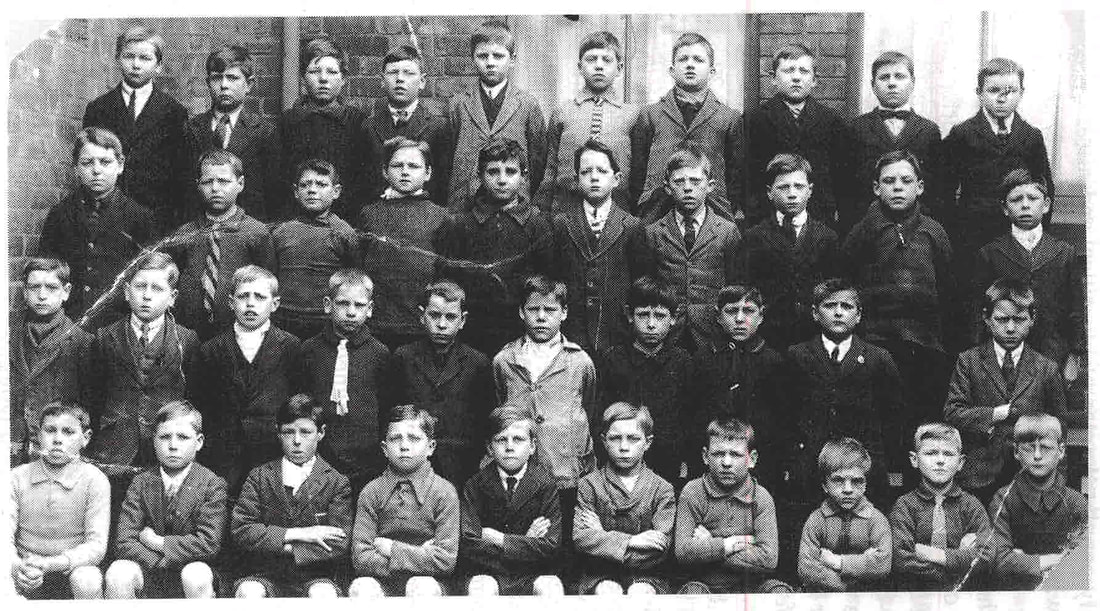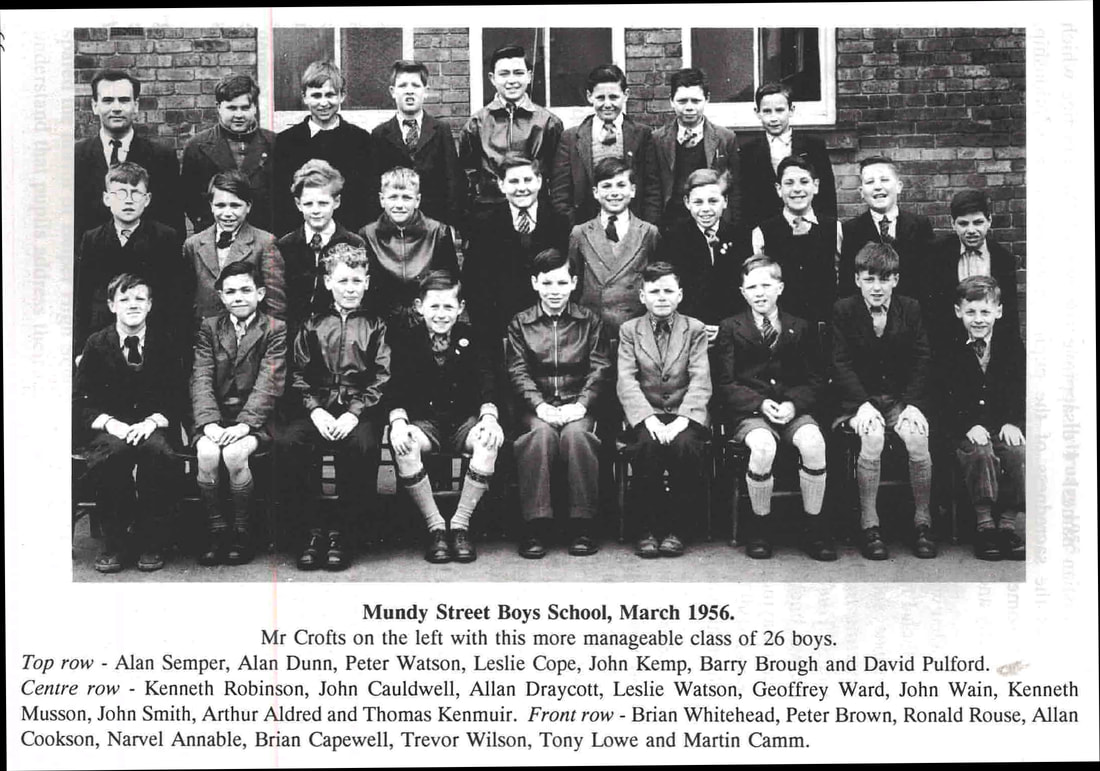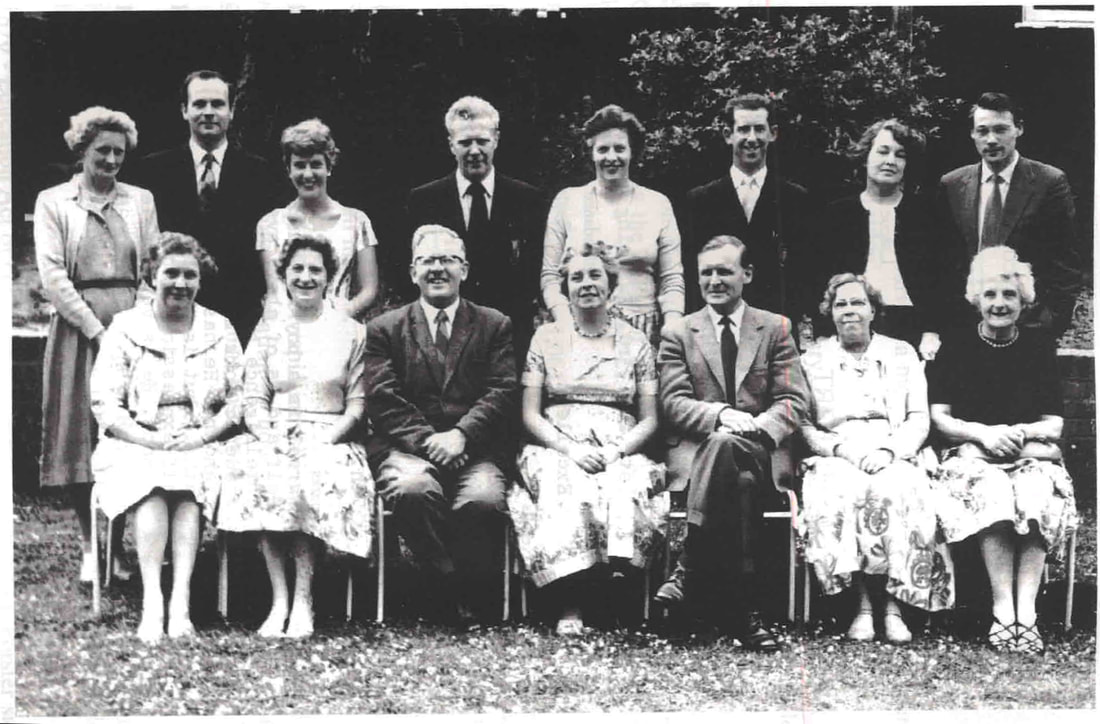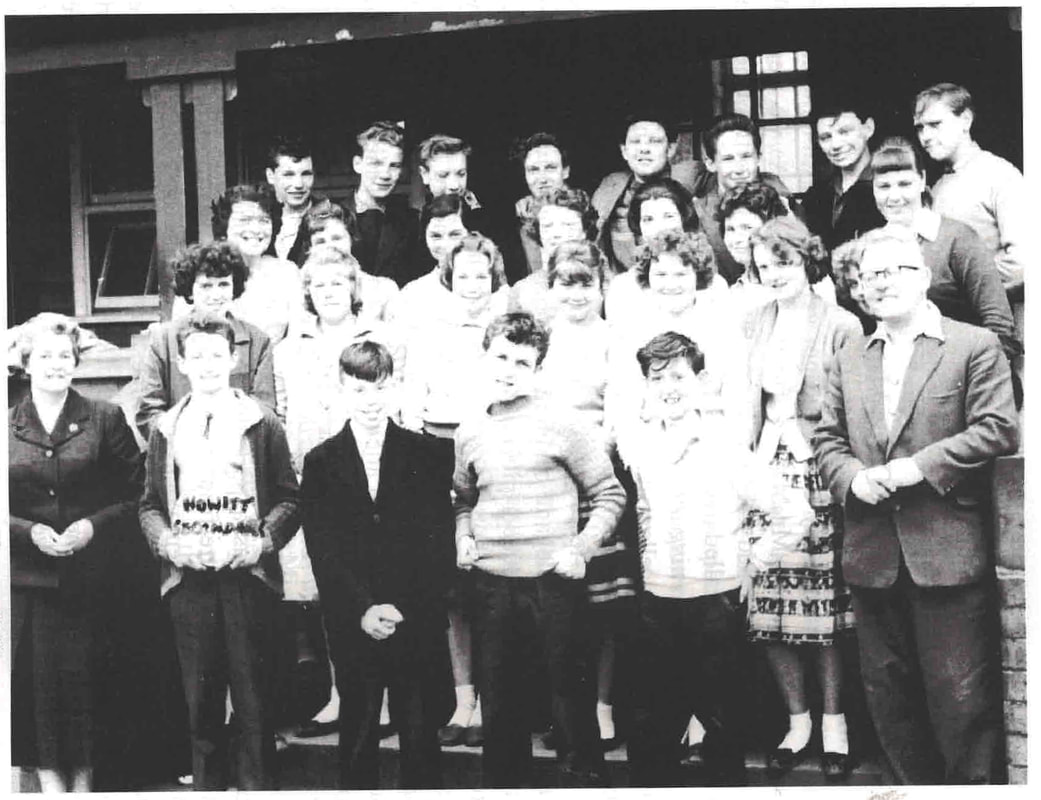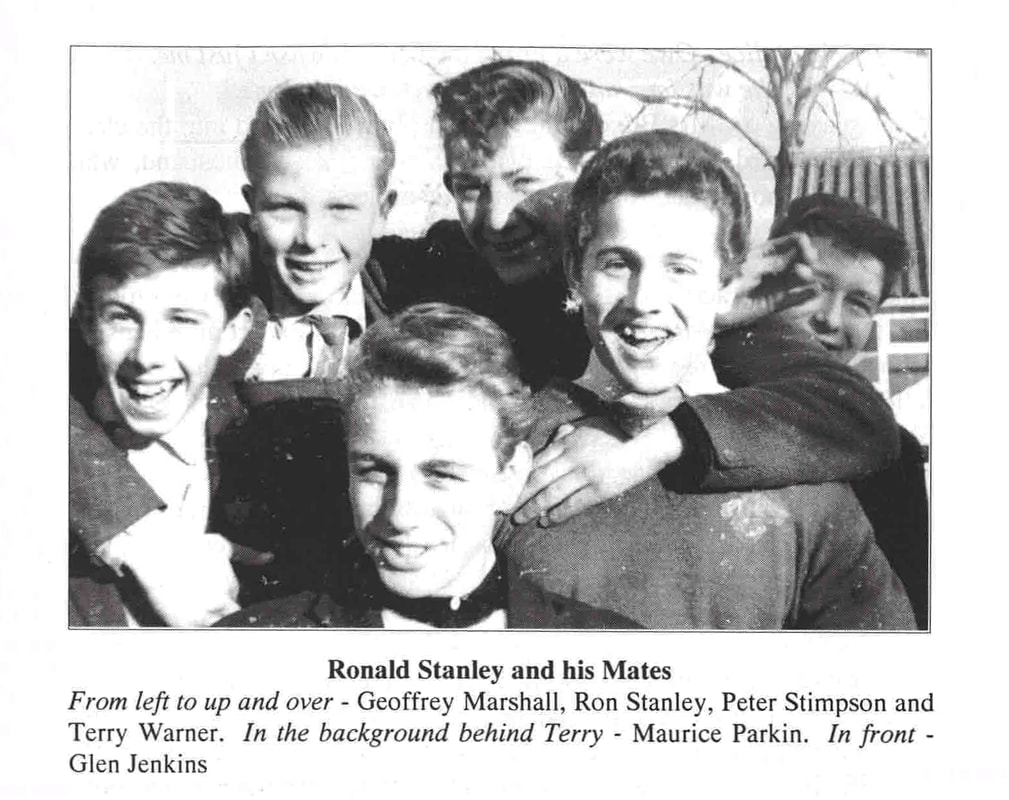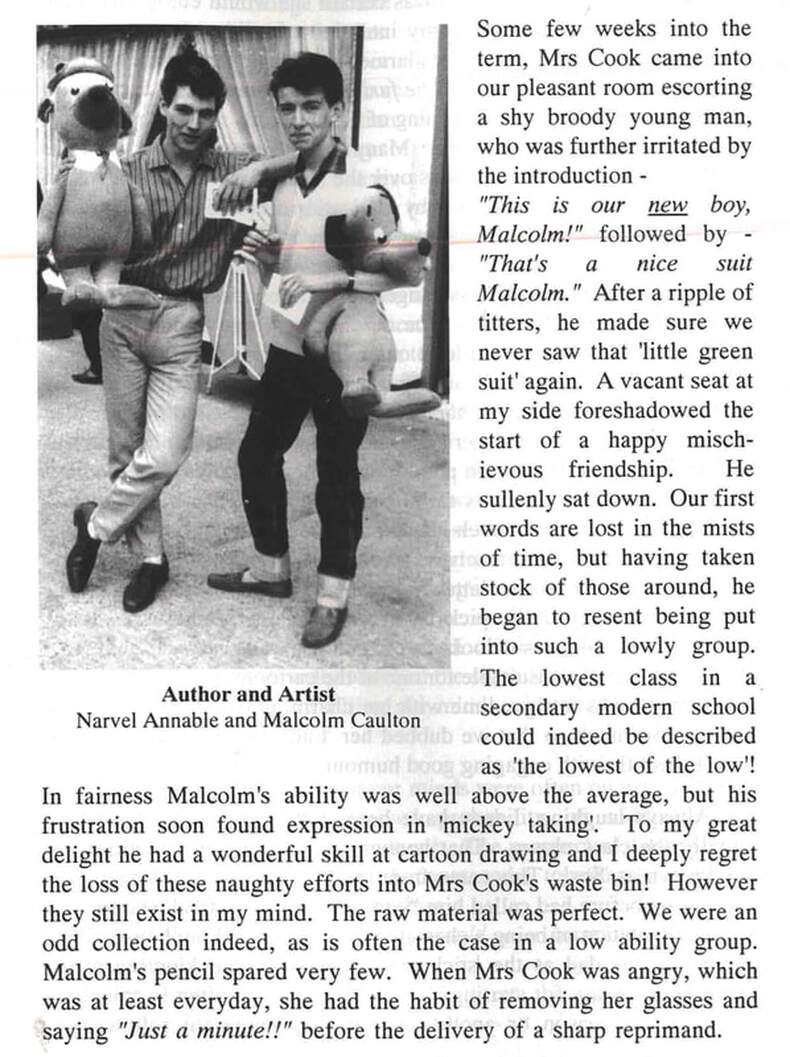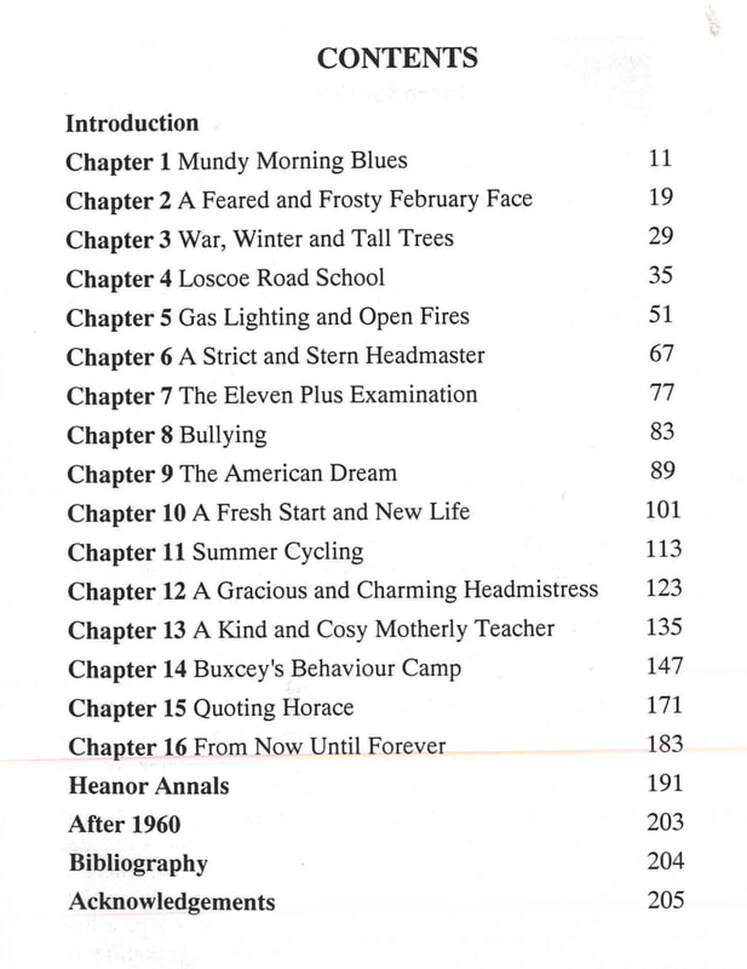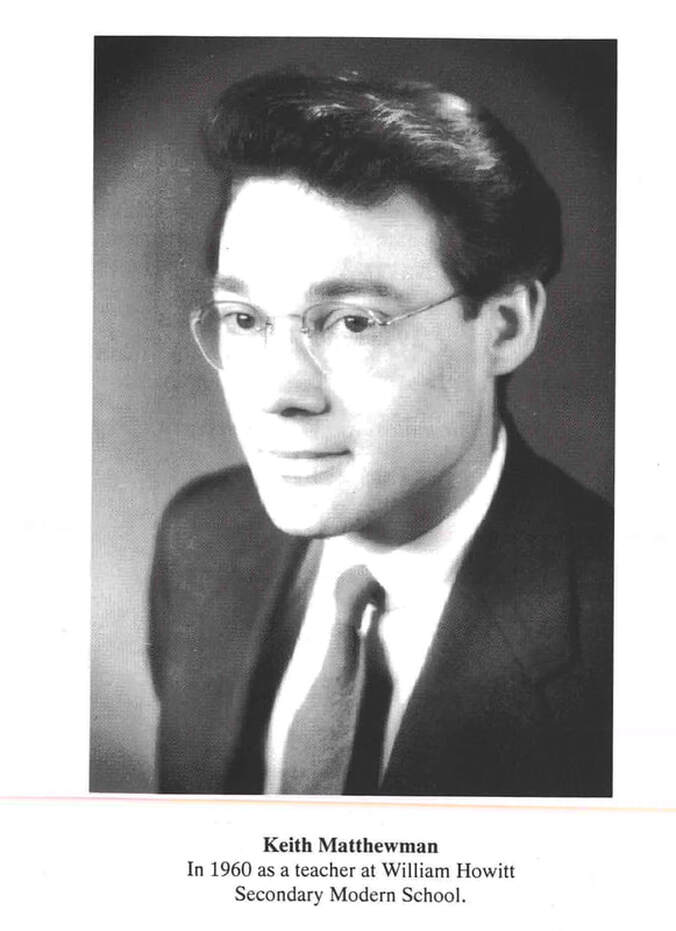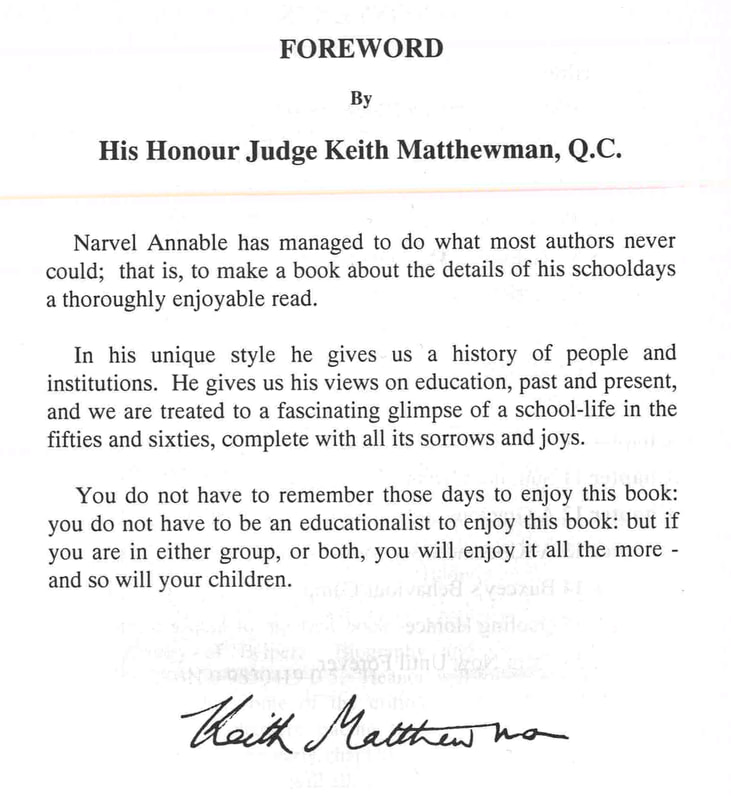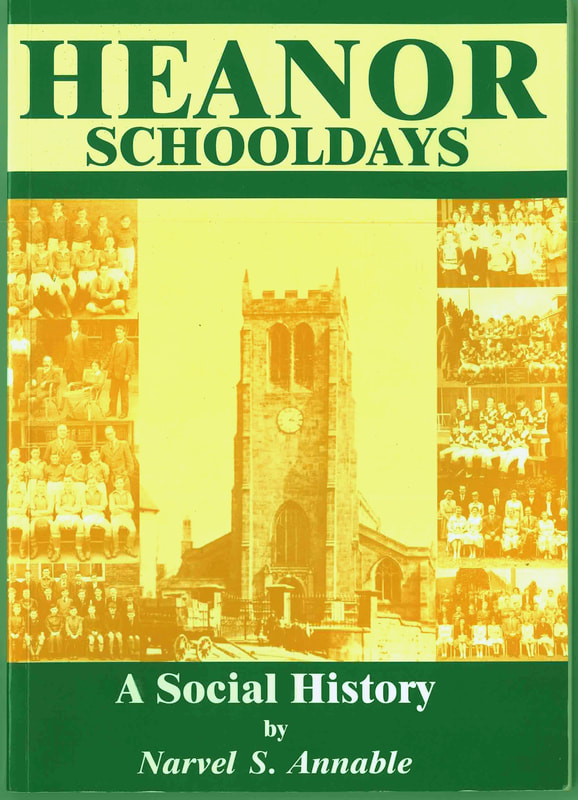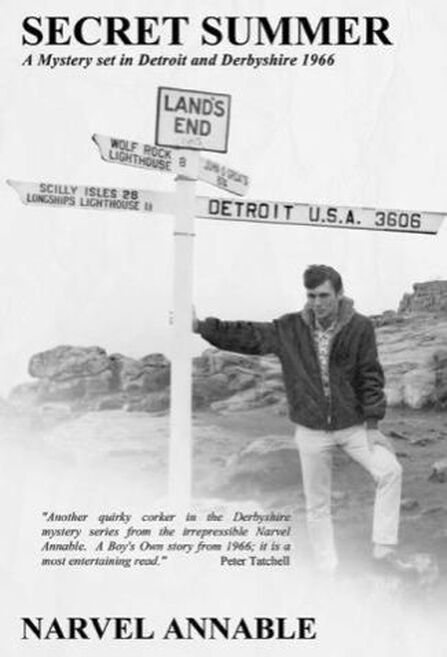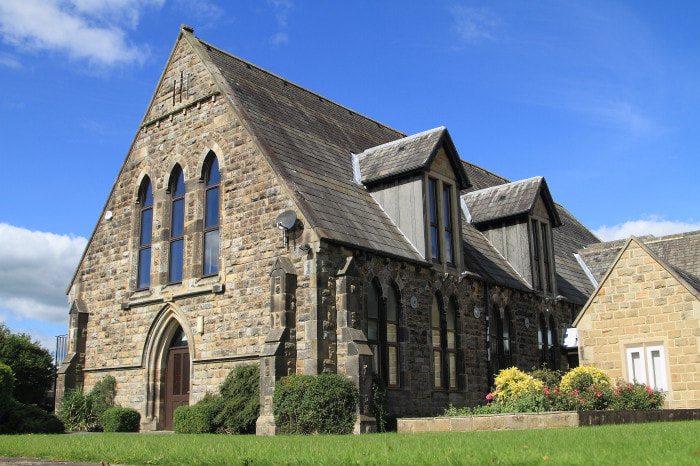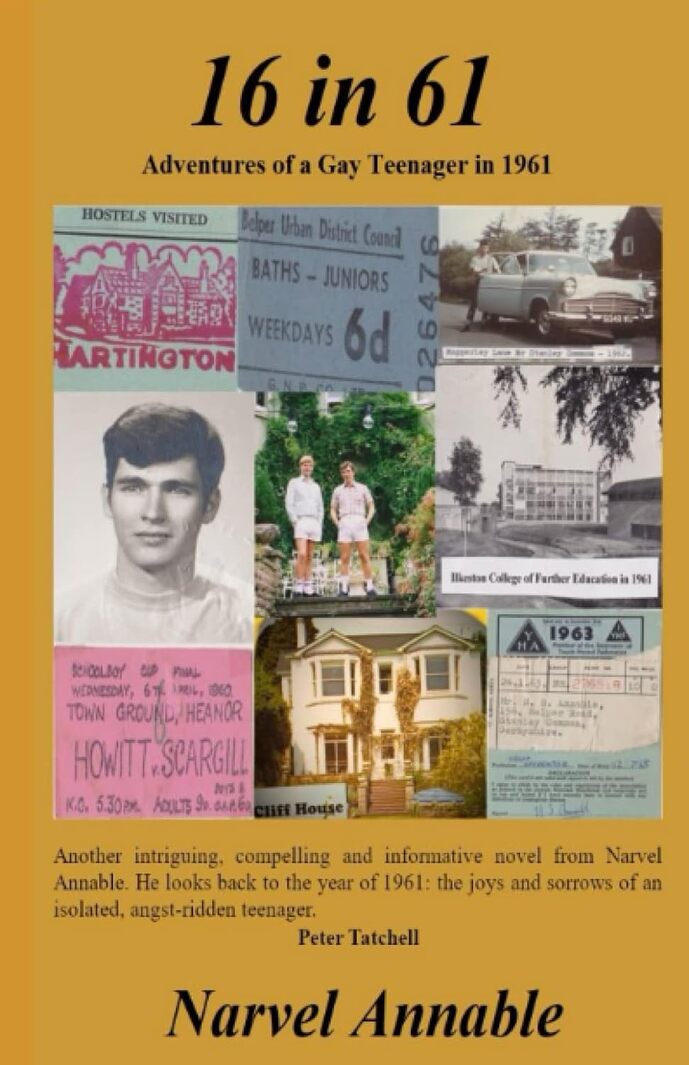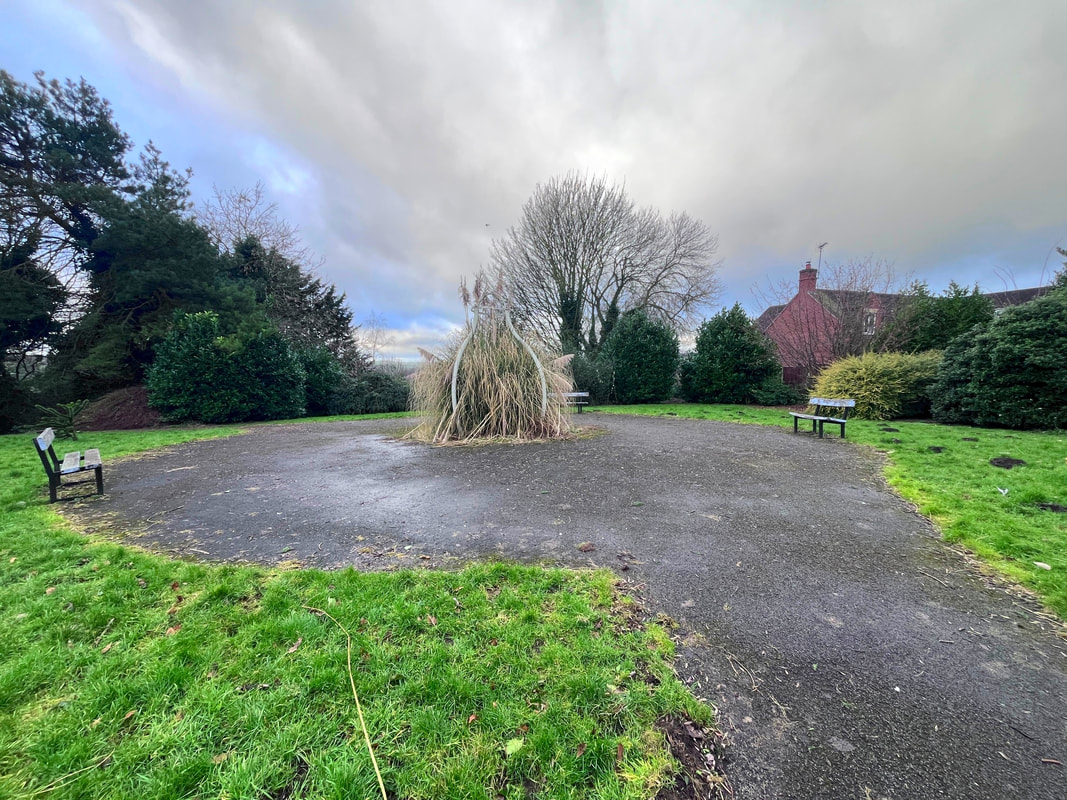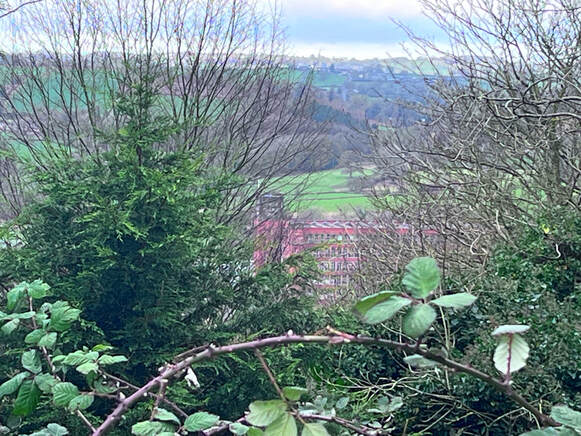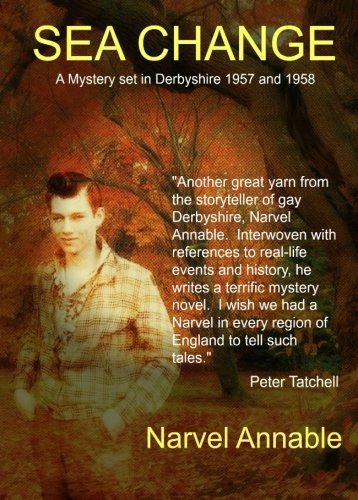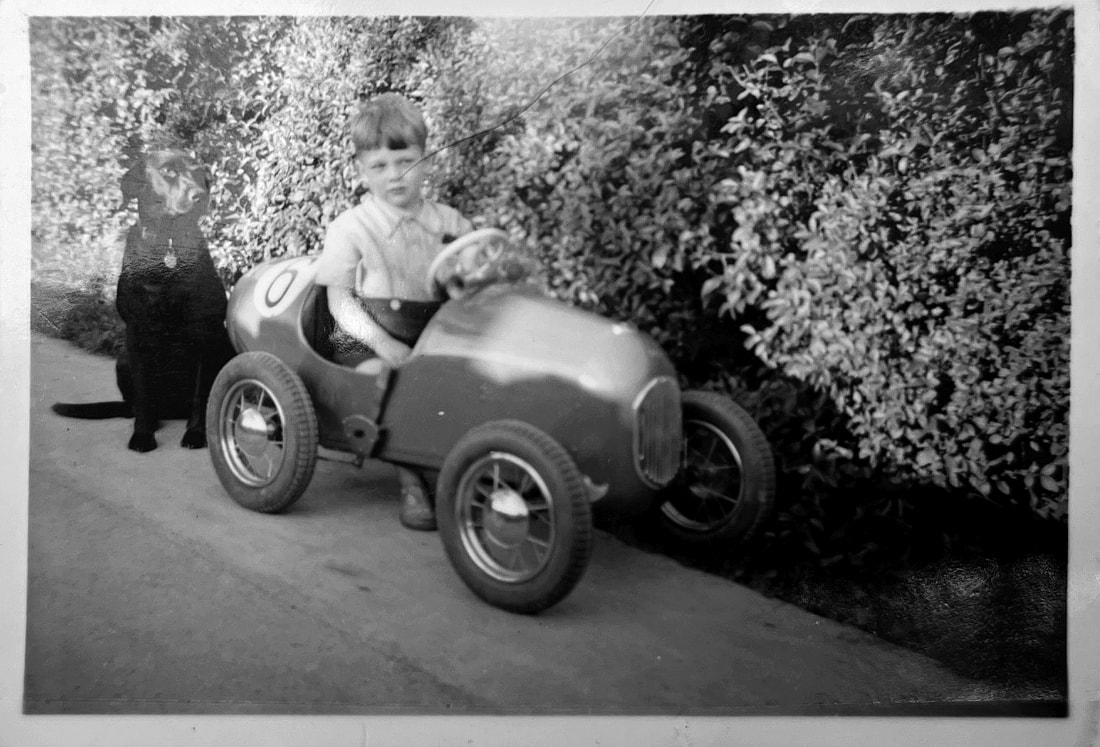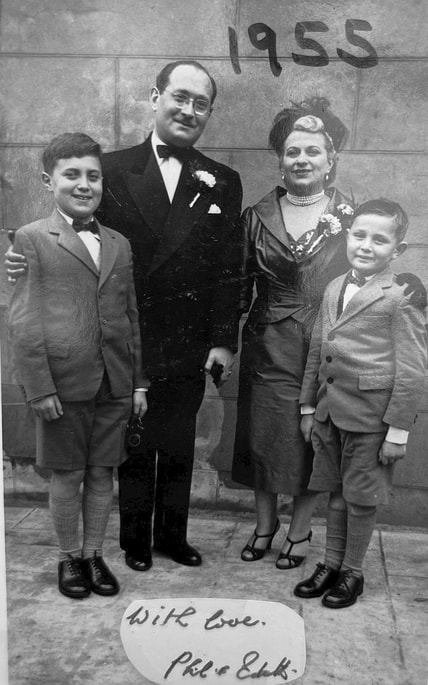|
My good friend Allan Morton recently gave me the sad news of the passing of Steve Hanson aka Ruby. We both share happy memories of Steve at the Green Lane Gallery pub in Derby, and for myself, subsequent reunions at the Crown. Steve was a loyal reader and became a special friend especially after he read Scruffy Chicken. We discovered an enjoyable common remembrance of Paul Sharpley aka Mr Toad the colourful and entertaining Music Master at Clarendon College where Steve was a student in 1970s Nottingham. Many of the gay community in Derby will remember and miss Steve Hanson - a welcoming and friendly host at the Green Lane Gallery. Today, we are all a little poorer. Good night, dear friend. Narvel Annable Ruby / Steve's funeral will be held on the 15th of July at Marketon Crematorium, at 1.30pm in the larger chapel. His family say that all are very welcome to attend the service and join afterwards in the The Crown Inn Derby, where he spent many happy hours. They state no flowers please, but instead donations to Marie Curie or Treetops who were such a support to Ruby in his illness. I taught as I was taught in the 1950s. Mr Annable was too strict, too formal, too unwilling to modernise and embrace child-centred trends in the 1980s. This mindset was a cloak to conceal the continuing anxiety of leading a double life. Inside, I was a frightened homosexual trying to look like a confident heterosexual on the outside. A stern schoolmaster was sabotaging my efforts to look human and come across as an effective educator. On one special occasion, a magic moment, I actually achieved a breakthrough and enjoyed a friendly, meaningful relationship with a group of pupils. Not an easy group! They were boisterous. They were a bunch of ruffians with an appalling reputation throughout the school. Some staff referred to Ronnie, Bobbie and Freddie as ‘challenging behaviour’. Hard-nosed traditionalists abused them with loutish language and occasional violence to keep order and impose discipline. This gang of three, by popularity and sheer force of personality, imposed on the rest of the class an influence which could make life very difficult for a teacher who took his work seriously. On one occasion, after an onerous hour, I dismissed the class but detained the terrible trio. They were ordered to remain behind, explain their disruptive attitude and suffer a reprimand. I had little confidence in his strategy - but it was worth a try. Looking back, I tried to reconstruct this extraordinary conference of four and locate the exact point when everything changed between the teacher and his charges. It happened during a moment when my criticism of Ronnie was interrupted by an effective heartfelt defence from his number two – Bobbie. Despite limited articulation, Bobbie managed to paint a picture of his best friend who was experiencing all the stresses and chaotic adolescent miseries which could have been a 14-year-old Narvel. The atmosphere of this coerced punishment suddenly transformed into a voluntary and valuable meeting between four equals. It was a magical moment, a sudden switch from monochrome into glorious Technicolor where three boys wanted to stay and further explain their lives to an adult who was now more counsellor than schoolmaster. Make no mistake, it was a dodgy situation for me hearing confidential information about colleagues verging on ‘unprofessional conduct’. I heard distressing details of their home life. A sympathetic ear encouraged further trust to the point that my status as teacher had morphed into the confidentiality of the confessional. Now treated like a newly acquired friend, I was begged to guard the secrets which had been entrusted to me for safe keeping. Although the boys hid behind a veneer of defiant swagger, their new confidant concluded that there was indeed a case to answer. They were victims of an insensitive system all too willing to exploit youths from a deprived background and give three dogs a bad name. Bobbie said, ‘I can’t help the way I speak, sir. It’s me voice, it irritates folk. It’s not my fault, sir. Honest!’ I had always been annoyed by a certain element of insolence in the utterances delivered by Bobbie. There was a sardonic tone which challenged authority and continued to chafe. Notwithstanding, I accepted that the pupil’s lilt of speech was natural, a part of Bobbie’s personality. It was not intentionally disrespectful. The new friendship was affirmed, enjoyed by all four. It reduced the stress of teaching in that particular class and, by osmosis; improved my standing in the whole of that 4th Year. This magical moment which occurred at Worksop’s Valley Comprehensive is detailed in my novel Double Life. Narvel Annable Hello Readers,
Deep into the Covid-19 pandemic lockdown of May 2020, Narvel recorded a Desert Island Discs style piece, in which he discussed various records that meant a lot to him in his life. This was interwoven with interesting, heart-felt stories from those times. You can listen to this by clicking anywhere on the image below: An old man suddenly broke down with uncontrollable weeping – piteous overmastering grief – a kind of hopelessness.
He was mourning the death of a close friend and tried to explain his emotional outburst. ‘I’m so sorry! Please forgive me. It just came over me – what I’ve lost. He was the only link with the past.’ That tragic incident inspired me to embark on a nostalgic walk through the pit village of my birth – Stanley Common, near Ilkeston. It was a sad progress, reminding me of that poor man’s heartbreaking distress because we are quite alone when the last one who remembers is gone. There was nothing sad about the weather. It was wall to wall sunshine as I passed many small terraced colliery cottages chronicling my teenage years in the 1950s and 1960s. Stanley Common is a linear village of gentle accent from east to west, from bottom up to the area known as ‘top common’ at Tansley Avenue. Some rows of tiny humble homes take their name from the original coal owners who built them for the miners. Lowes Row on the south side is the onetime home of Aunty Olive Patrick. Olive looked after me like a mother during the first years of my life. Her sister, Aunty Mable and Uncle Arthur Clifton lived a few doors up. They had four boys, my cousin Ken, Gordon, Keith and Brian Clifton who died at the age of 90 in 2023. One sister, Lorraine, a year or so younger than myself, died this year which is my 79th. Except for me – all gone! The shadow of homophobia has weakened my fragile link with all relatives for more than half a century. Arthur’s sister, my mother Connie, was born in a tiny cottage in 1911 on Brown’s Row facing Lowes Row. Progressing further up Belper Road, we pass the old football ground [the rec] where Common Lane on the left [south side] meets the main road. On that corner, I remember an ancient crumbling old house which was demolished in 1958 to make space for the newly built Stanley Common Miners Welfare. The Land Lord and Land Lady where Jack and Olive Patrick. Sadly, the two sisters Olive and Mable were not on good terms. I recall Olive’s first attempt at darts – ‘I wasn’t keen, but they persuaded me. It was a high score when I threw! They all clapped. And our Mable sat there with a face as long as a fiddle!’ The ongoing feud was especially upsetting to me. These two ladies were more like second mothers than aunts. 1959 saw me a frustrated, deeply repressed 14-year-old. We had a shy and gentle postmaster called Jack Carrier. One day he was there - the next day he was gone! ‘What’s happened to him?’ I asked mother. ‘That one! Huh! Good riddance,’ she snapped. ‘He was one of those funny sorts. No good to any woman,’ she growled. ‘Well, Connie, he was always nicely spoken and polite to me,’ sniffed Aunty Mable, taking another swig of tea. The effect on me was the same as the effect on hundreds of thousands like me. I hid inside of myself. I became withdrawn and tried to pretend to desire girls. I drifted into a secret world of fear and insecurity. Mable Clifton’s kind and generous tolerant words meant everything to me on that day 65 years ago. The Miners Welfare, gleaming new and so proud, endured for decades of happy memories. Eventually, it was demolished and swept away to make room for new houses. All Stanley Common relatives I knew have now passed on. It started with an old man who broke down in tears mourning the past; like him, I too feel like the only one who remembers those long-gone good people. Narvel Annable Narvel was filmed talking about his life in Stanley Common in April, 2015. The original sound was enhanced a few years ago due to the traffic and wind noise on the day. This short film can be viewed on Narvel's YouTube channel below. Narvel's Secret Derbyshire - Stanley Common Narvel’s Books Part 9 Miss Calder’s Children 1997 A Social History of Belper and Biography The above photograph supported a 1997 review in the Derbyshire Times to launch Miss Calder’s Children. Ninety-year-old Bess West is on the left with young Sarah on the right, playing the part of young Bess, as a pupil writing on her slate at Bridge House School in 1917. Born in 1907, Bess Neaum was the chief witness and treasure trove of information which made this biography possible. She lived with Miss Florence Calder and her sisters up to her 18th year in 1925. ‘They took possession of me and were always very kind.’ Bess looked upon Florence as a second mother. I recall the word godmother used. In this situation, away from parents, I can claim some empathy with Bess. For the first few years of my life, I lived with my Aunty Olive Patrick in Stanley Common, 1945 to approximately 1948 with no memory of mother, father or sisters. During long interviews during 1995 and 1996, Bess and I felt there was a secret subtext to our conversations. We were clearly kindred spirits. Tightly locked in my closet, the subject of homosexuality never reared its embarrassing head. However, Bess was keen to give me details of the little-known private relationship between Florence Calder and Mrs Mary Strutt the wife of George Herbert Strutt. At first, Florence was appointed as a governess to the Strutt’s children. During this time the friendship between the two ladies deepened against a luxurious privileged backdrop of Edwardian Britain. Florence and Mary would cruise on the Strutt’s private steam yacht ‘Sandra’ sailing between the mainland and Kingairlock in Scotland. As the years passed by, Florence was promoted to ‘companion’ and personal friend to Mary Strutt. They were inseparable. Mary was a keen golfer and paid for professional tuition to enable her dear friend to become just as accomplished extending their activities to include music and dancing. Happy days passed as they travelled and became more adventurous. The status of Florence Calder was at its pinnacle when something happened to cause a catastrophic fall! That catastrophe was never explained to me by Bess. An instinct told me not to ask questions. In the text of my biography, I smoothed over the abrupt demotion of Florence the millionaire world traveller, down to simply Miss Calder - spinster schoolmistress at Bridge House School in Belper. She became just an ordinary teacher, living and working next to her other sisters. Bess knew more, but protected her godmother taking that knowledge to her grave. Fast forward to 1949 and find just one surviving sister at the ivy clad school with its beautifully maintained garden under the shade of the venerable old plane tree with its massive trunk. I encountered that sole survivor when, at the age of four, little Narvel became a pupil of Miss Calder who was 73. I’ve graduated from writing on slates at that Victorian dame school to typing on my 2024 computer – six years older than the dame whose face was a frightening mass of wrinkles. She was strict, but I remember her clearly with affection and gratitude. Narvel Annable Here is Allan Morton’s review of my first book, Miss Calder’s Children, published in 1997. Copies of the book are now scarce, but do they occasionally crop up on eBay. The ISBN is 0 9530419 0 5 if that may also be of help. A Review of Miss Calder’s Children ‘A personal story of one successful woman, interwoven with the failings of 20th century education’. Narvel has excellently crafted together a very interesting and readable book here, and I found it hard to put it down once I got started. Narvel’s introduction states: ‘The following is a fusion of a biography of a school teacher, a social history of Belper and a critique on modern education. I will set out to show that the life and times of Miss Florence Calder is an ideal from the past which should and could be bought to the present for the benefit of the future’. Miss Calder’s Children was Narvel’s first publication from some 23 years ago, and it was clearly a labour of love for him to meticulously piece together all this information and to also mix in his own, sometimes very forthright opinions. This, together with the stories he gathered from various people as part of his research, will not only be preserved forever, but will serve as an education for people like myself. I worked in Belper’s East Mill for around 12 years without any knowledge of the old Bridge House School or the ancient tree that once stood adjacent to it. The chapter entitled Plane Tree, is all about that very tree that grew beside the Bridge House School, and how it witnessed many changes to Belper over the years. This whole chapter is up there amongst the best descriptive pieces I have read by Narvel, and it leaves the reader in no doubt of his rooted passions. He is most definitely on the side of those ancient dryad wood spirits. As with his other books, his portrayal of people, the depth of his characters, really makes you feel you know them. This is similarly the case here. The way he describes Miss Calder, about how she demanded respect and discipline, really made me feel I was experiencing the revered teacher first-hand. Other things worthy of a mention, include the scary BIG DADDY inscribed paddle he says he used for disciplining students in his Detroit teaching days. He makes clear that it was an unpleasant experience, that disturbed him as much as the transgressor! Another alarming experience, albeit years earlier, was to have been subject to Miss Calder’s menacing spider! This struck fear into already frightened pupils, as it dangled threateningly above their heads if they were made to stand against the wall, in the corner where it lived! I was also shocked to read about the author’s near-severed tongue too! As a young child still, at the Bridge House School, he once tripped and fell in his garden, cutting his tongue in half in all the excitement of running to see his friend’s sherbet mixture that had miraculously changed colour! I recently asked Narvel about this unsettling revelation, and if there was still any lasting damage all these years later. ‘My tongue still shows a cleft from that early accident. It took many months to heal – but it did eventually heal. In stark contrast, a lifetime later, the Mundy Street horrors still haunt me with flashbacks and occasional depression. Those emotional injuries have never healed’ There is so much more to the book that I could write about, but I hope you are able to secure your own copy to experience this wonderful work yourselves. One day soon I intend to see if the stamp dispensing machine is still there outside the old Bridge Street Post Office, that he mentions gave him great fascination as a child. After reading Miss Calder’s Children there is one thing for sure, and that is how differently I will now view the whole Bridgefoot and Triangle area of Belper in a totally different light. Allan Morton, July 2020. ITV’s REAL CRIME series Love You To Death Narvel Annable has a speaking part on the set of ITV’s REAL CRIME series Love You To Death first shown on January 26th 2004. In this two-minute YouTube film, cleverly created by Allan Morton, you can see the actor Noah Huntley rehearsing with Narvel and His Honour Judge Keith Matthewman QC inside the original courtroom of the Galleries of Justice. You might also spot Terry Durand, Ken Varnum [Nobby the Gnome] and some friends who helped to make up the jury. https://youtu.be/xxDXjrPUDaw?si=335ZiNjg1fnSWHa1 Narvel’s Books Part 8 A Judge Too Far His Honour Judge Keith Matthewman QC [1936-2008] of the Nottingham Crown Court Memory problems are the penalty of advancing years. Accordingly, it is a treasure to have a younger friend who has closely followed my writing career. Good friend Allan Morton’s head has become a mine of information no longer available in my own head. He is now a valuable repository of data. Announcing my intention of featuring A Judge Too Far in a future post, Allan told me he had reviewed the book two years ago! Two years back is a dead zone in my memory bank – but I have total recall of teenage days sixty years past. Reading Allan’s review of A Judge Too Far was like reading it for the first time. I was very impressed, moved and deeply grateful for this carefully crafted piece. The review, together with listening to the 27- minute Radio Derby broadcast of Keith, John Holmes and myself - had the effect of rekindling my affection for Keith. I’m glad of this. The passage of time since his death in 2008 has somehow hardened my heart towards this man of many qualities. Allan’s kindness and generosity have softened that view. Narvel Annable Review of A Judge Too Far Narvel’s A Judge Too Far was the only book of his that I had not read. This was partly due to it being quite scarce and only available second hand online, but also the fact that Narvel has always claimed this was the worst book he had ever written – hardly encouragement for me to invest my time reading it! However, despite this I did obtain a copy and was quite pleasantly surprised. Here is my review. The striking red cover and photo of a stern looking Judge Keith Matthewman QC perhaps sets a bit of a serious tone about the book. The back cover offers a lighter mood though, thanks to a tête-à-tête photo of the judge sat opposite a smiling Mr Annable himself. The story covers the life of Keith Matthewman, from his early days as a salesman and a teacher, through to being a left-wing socialist offered a position as a Labour MP, to becoming a well-respected judge at Nottingham Crown Court. It might seem strange that Narvel should choose a judge as a subject to write about. I mean, what could they possibly have in common, if anything? The answer is that Narvel was a former pupil of the William Howitt Secondary Modern School in Heanor in the late 1950s. On one occasion there, Keith Matthewman gave a memorable lesson on medieval and Victorian morality, which Narvel remembered so vividly. This prompted Narvel, nearly four decades later, to write to Keith seeking permission to describe and publish the notable occasion, from when Narvel ‘first came before him’ in that lesson. “I don’t remember the lesson, but don’t deny it!” was the reply, together with an invitation for Narvel to telephone him to discuss the matter more fully, eventually resulting in this biography. Narvel clearly shared the same sentiments as Keith, with his frustrations of the modern ‘can’t touch me’ attitude and lack of respect in society. Narvel blames this on ‘soft’ teaching methods and the lack of standards that he himself experienced in the classroom as a teacher. The book has two Forewords, both from high-ranking former Labour MP’s. These are Geoff Hoon and Willy Bach, such was the respect and high esteem in which Keith Matthewman was held. In the book, Keith was referred to as a ‘judge of the old school’ and of common sense, which society still continues to suffer the lack of to this day. Ludicrous stories of injustice and too lenient jail sentences ensue. They said Keith’s comments always ‘shone out like a beacon of common sense’, and that he ‘spoke for the common man’ by ‘providing a great service by his no-nonsense approach’. Keith certainly put in countless hours of case preparations, where quite often tough decisions had to be made that could affect a person’s life. Numerous photos, letters and newspaper clippings are skilfully interwoven in the book, giving a real feel for the stories and ability to picture the people in this life. A Judge Too Far was published in 2001 and was Narvel’s fourth book, following on from his novel Death on the Derwent in 1999. A Judge Too Far is also the last book before Lost Lad, the book in which Narvel bravely no longer hides his same sex attraction by portraying himself as the character, Simeon. From that point on, Narvel’s novels were disguised biographies of his life. I was delighted to see that A Judge Too Far was dedicated to Paul Sharpley, aka ‘Mr Toad’ from his novels. The dedication reads ‘for enthusiastic encouragement together with inspiration and the laughs, especially the laughs, down the long journey of our friendship – albeit a bumpy ride!” Well, I can imagine it would have been a bumpy ride if he really did drive around in an old bubble car! Page 8 includes an interesting map he has titled ‘Keith Matthewman Country’. This shows an area from Belper, right over to the Crown Court in Nottingham, where Keith was judge. This area features later in the book, where Narvel undertakes a bicycle ride from his house in Belper, to the Notts Forest City Ground. This was a route that took in the Nutbrook and Erewash Canals and Nottingham Castle. He was meeting an Ex Police Chief Superintendent for a research interview for the book. Also mentioned is the legendary BBC Radio Derby Football commentator, Graham Richards. Many Derby County fans grew up listening to Graham from the 1970s onwards waxing lyrical on the radio during football matches, often with his witty, opinionated views. He was never afraid to say what he thought. In the book he was referenced in his capacity as a District Judge and Barrister, obviously with a connection to Keith himself. A Judge Too Far was published in 2001, the same year that Judge Keith Matthewman QC retired. Sadly, it was only 7 years later that Keith passed away in 2008, aged just 72, and just 4 months after his wife Jane had also passed. Narvel said that “Keith adored Jane. He was grief stricken after her death. That loss hastened his own demise only months later”. I mentioned at the start that Narvel regards this book as his least favourite. In an email to me from 2013, Narvel explains why he feels this way: “Of all my books, I rate A Judge Too Far at the bottom. This is because (to my utter frustration) he (Keith) insisted on editing out all negative references he didn’t like. That is clear to quite of few readers who have, quite rightly, criticised the biography. It is a hagiography, even though I said it was not a hagiography. In two years of my time, he wasted at least one year deleting hours of my most creative work”. I personally found A Judge Too Far an enjoyable read that contained several surprising references that were familiar to me in my own life. One example was Keith’s time at the Middle Temple in London. I once spent a lot of time in the library there, installing computers to take them into the 21st Century. I recalled the many portraits on the walls as mentioned in the book. Even the library itself was a very grand building. Before reading this book, I thought of judges as being very strict, stern individuals who were out of touch with society. This book has reshaped my opinion, allowing an insight to the interesting and thought-provoking life of this down-to-earth and highly esteemed individual. Allan Morton, October 2022. Click below to hear to an archive BBC Radio Derby interview with Keith and Narvel discussing the book:
https://www.mixcloud.com/narvelontheradio/narvel-annable-a-judge-too-far-bbc-radio-derby/ Read the Nottingham Post review of A Judge Too Far from December 2001: https://www.dropbox.com/s/6w76aelgyky4m7j/Judge%20Too%20Far.jpg?st=vxsy6g86&dl=0www.dropbox.com/s/6w76aelgyky4m7j/Judge%20Too%20Far.jpg?st=vxsy6g86&dl=0 In the 1965 gay community, it was common knowledge that Brian Smedley was a Barrister. I met him frequently in several venues and drooled over his beautiful white Jaguar. He was a regular at our 'gentleman's club', the Derby Turkish Baths (cautiously signing in as 'Brian Jones') and was a prestigious dinner guest in the homes of senior members of both the Derby and Nottingham elite homosexuals. At the home of my architect friend, Eric Wrightam 1927-2018 – on one occasion, Brian was especially kind to me. In 1966, I’d just returned from Detroit in the aftermath of an intense love affair with a gorgeous young hunk in Secret Summer, called Ahmed. Brian noticed the intensity of infatuation which was causing great anxiety. In a tete-a-tete, he counselled good advice. ‘In our secret world of isolation and anonymity, you should put your job, your profession first. You talk about becoming a schoolmaster teaching history here in England. Well then, go to college and make it happen. If your American boyfriend truly loves you, he’ll come here and live with you.’ Brian Smedley and other gay men shared the life-long worry, the chronic horror of public disapproval should their promiscuous lifestyle ever come to light. In a world where gay sex was illegal, considered immoral - in the Derby / Nottingham professional classes - a pervasive terror of being outed as 'a queer' was all around – the air was thick with the threat of disgrace and ruination. It could be cut with a knife. The Nottingham Evening Post of April 16th 2007 carried a full-page feature tribute by Rebecca Sherdley about Sir Brian Smedley who had just died. The photograph showed the public face of a High Court Judge who sat in the Old Bailey, the respectable image of Brian Smedley, resplendent in his formal robes and full wig. An higher resolution image of the above can be found below, this being Narvel's original Information Sheet No. 75 (please note some of the contact information on this is out of date): https://www.dropbox.com/s/qwnvs7zmri1e2i9/Info%20Sheet%2075.jpg?st=jlogcfrs&dl=0 But this one-time scruffy chicken who knew him 60 years ago, he sees behind the majesty of the law, he sees the sad eyes of a haunted man guarded and reserved. Note the last few words of this feature - ‘Sir Brian, who lived near Sittingbourne, Kent, leaves his partner, Peter.’ It was a coincidence to discover that my former acquaintance Brian Smedley and my former teacher Keith Matthewman 1936-2008 shared a close friendship which went right back to the early 1960s, to their early barrister days in Chambers at The Ropewalk in Nottingham. In the late 1990s, researching A Judge Too Far - A Biography of His Honour Judge Keith Matthewman QC of the Nottingham Crown Court, it was necessary to write my very first letter to Brian Smedley. Back in the homophobic dark ages, rough lads of my ilk were severely cautioned - nay threatened - never ever attempt a written communication which might eventually become useful to the police. In this innocent missive, a blast from the past, I politely asked Sir Brian if he would care to share any interesting / entertaining anecdotes regarding his friendship with Judge Matthewman. It seemed foolish to pretend that we were strangers, so, in the last paragraph, I touched on the fact that we had met and mentioned a few names including his old friend Eric Wrightam and the dinner parties. Sadly, I found his reply hurtful. It included a few useful references to his teaching days in Long Eaton and memories of his friendship with Keith and Jane Matthewman. But, at the end, his tone was stern and rather grand. Sir Brian Smedley, the High Court Judge of the Old Bailey informed me that I must be mistaken. He had no memory of a teenager called Annable or of any of the other people mentioned. Narvel Annable The recent post about – angry young man and rebel writer Alan Sillitoe has a connection with Nobby the Gnome, an amusing character who appears in several of my novels. Like Alan, Nobby was a real person first encountered when I came across him sitting in the gardens of Nottingham Castle in 1965. He was in pensive mood on the slopes of that one-time medieval fortress when, in a pleasant moment of serendipity, I engaged him in conversation. For a while, we sat in contemplative silence surveying the southerly panorama of a mid-20th century city which had changed little in the previous 50 years. It was a comforting view for a homesick boy who had been isolated in Detroit. It was so English, so nostalgic. To the west, lay The Park. In the early 19th century, it was a real park. The view was a forest of Victorian roofs and smoking chimneys which fell away in serried ranks, nicely decorated by the occasional mature tree. To the south, was a vista of the meandering River Trent encircling the poorer rows of roofs in The Meadows. This picture, soothing and calming, was complemented with grime and grit. Beyond, moving east, was evidence of commerce, industry and pollution. A distant train whistled. It painfully puffed and clanked slowly over the Nottingham Canal, under Abbey Bridge and, eventually, out of sight and out of hearing. I savoured the quality this East Midland moment. Why quality? Some years later, feeling trapped and irritated in a Detroit traffic jam, I returned to that moment in an attempt to find calm. The ingredients constituted a zone of comfort which was so very nice. It had to be said; the scene before me was quite scruffy, so how did that add up to quality? Dirty scruffy kids were having a great time chasing each other around the flower beds, but the yells and squeals were no problem at all. On the contrary, they were a welcome part of the scene and added richness to the total picture. Nobby was a bedraggled rustic who had slowly struggled up the hill, thankfully, now resting his old bones on one of the benches. We sat together staring out across the plain seeing into infinity. The old and the young: that was the difference. In the murder capital of the USA, you seldom saw the old and the young. It was ill advised, too dangerous. Old folks stayed inside where it was safe. On a dull, grey day, I seemed to be seeing it all as if I were viewing a black and white film. And I wondered why? Then it came to me. I’d seen it before watching Saturday Night and Sunday Morning. Set in Nottingham, it portrayed the working-class heterosexual ‘kitchen sink’ existence of boozing, brawling and bedding - so graphically evoked by Alan Sillitoe. All this existed dangerously close for homosexuals. Perilously, they tried to make contact with their own kind as they struggled to snatch their own special pleasures in the big City of Nottingham. There were numerous undocumented casualties. And nobody knew this better than Nobby the Gnome who had the scars to prove it – physical and mental. Was he thinking of these perils now? In an attempt to read the old man’s thoughts, I studied his profile. Nobby had a nice if rather gnarled face. The once cute turned-up nose, as sweet as a button, was now turned down and slightly bent to one side. A fact once cruelly observed by an irritated high and mighty Claud Hoadley, after the lowly creature had dared to address him outside of Derby Cathedral. True, the ancient gnome was misshapen. He was worn by years of lavatory living and long exposure in the howling wilderness winds of North Derbyshire. But Nobby was not so old or as hideous as the Belper Goblin. Nobby had nothing of the leering, fish eyes of that crooked old crone, or any of the knobbly carbuncles which disfigured the countenance of the weather-beaten Toby Jug. And knobbly Nobby was totally innocent of the lust infested, fat, stubbled, slobbering face of Heanor’s Guzzly Granddad. Moreover, he certainly had no trace of that twisted look inflicted on the repulsive face of Becksitch Betty by a life time of sustained, spiteful thoughts. ‘A penny for your thoughts,’ I said to Nobby. ‘I’m thinking about my friend Ron. It’s his birthday,’ replied the gnome, sadly, still staring out over the wide Vale of Trent. ‘That’s nice,’ I said, treading carefully, mindful of deep waters. ‘How old is Ron?’ ‘He would have been 82 today.’ said Nobby - in a voice which was steady – but only just. ‘Would you like to talk about it?’ I encouraged. Nobby shook his head. This strange gentleman of the road, remembered with affection, took his secrets to the grave. From fragments of information, I attempted a reconstruction of Nobby’s early life in old Nottingham in Secret Summer - Chapter 30 - Narrations of a Naughty Gnome. Nobby the Gnome was a fairytale character who appeared to be a natural work of art. He seemed to have morphed out of the very elements of Derbyshire. Long after he was gone, his face could still be seen in the gnarled, knotted, writhing and twisting trunks of ancient trees depicted with more skill and imagination than any human artist could achieve. At any moment, his head might poke out of a hollow old oak, a suitable home for such a character. He could be seen sitting in the coils of choking ivy, or in the rotting recesses of an ash tree recovering from a long hard winter. The imagined representation of that old gnome was as invisible as the hidden gay underworld in the Peak District itself. Throughout most of the 20th century, the illusive sprite had always been there one minute - and gone the next. Now he has gone forever. He has reunited with other bizarre elements of Derbyshire homosexual history. They have all passed away, gone to that Great Cottage in the Sky. We will never see their like again. Narvel Annable Secret Summer is available from Narvel's Dobba's Delights store on Amazon. Click here or on the above book cover.
Good friend Allan Morton sent me a link about a TV programme which is worth a watch - https://youtu.be/AFs8oDf_P30?si=C2FlncxK19-Q61g1 It's called Books That Made Britain - Rebel Writers of the East Midlands, focused on D H Lawrence and Alan Sillitoe. I knew Bill Smith would be very interested in this excellent short film featuring Saturday Night and Sunday Morning and Sons and Lovers. Bill and I go back a long way - all the way back to the Ilkeston College of Further Education where we studied (amongst other subjects) drama in the 1960s. He became an actor and executive producer of Westwood Films 2003. Bill’s feedback was enthusiastic and informative - Hello Narvel, Thank you for bringing this programme to my attention. I have professional connections with Alan Sillitoe and DH Lawrence. Saturday Night and Sunday Morning was filmed back in 1959. I researched and recorded some of the locations on my Westwood Films Facebook page. Original photos were taken by the crew location photographer in Radford and around Nottingham. After viewing this programme, I noticed that the locations chosen were some of the sites featured in the film. Such as the scene with Albert Finney and Rachael Roberts at the top of Nottingham Castle and also in front of the Left Lion that fronts Nottingham Council House. I worked with Shirley Anne Field on a BBC Drama in Birmingham back in the 80's and met Albert Finney in London when he was appearing in the play Alpha Beta with Rachael Roberts. We chatted about Nottingham and how the city had changed since the filming took place. There's also footage with Alan Sillitoe taken in Yates Wine Lodge in Nottingham City Centre and in the Raleigh factory. I've had the privilege of hearing and meeting Alan Sillitoe at Eastwood when he came to give a talk relating to his work when he was invited by the DH Lawrence Society at the Dora Phillips Hall. That may have been in the mid 90's. I have a small part in the film The Ragman's Daughter, which was the disastrous sequel to Saturday Night and Sunday Morning filmed in Nottingham in 1971. With regard to Sons and Lovers, Brinsley Headstocks were dismantled last November due to safety issues stating that they had severely deteriorated and could collapse. They are of cinematic significance because of the mining accident scene shot in the film version of Sons and Lovers. They were one of the oldest mining headstocks in existence in the UK. I re-enacted the role of Walter Morel down at 28 Garden Road (the Sons & Lovers house) property for D Amos when he asked me to play the role using the BBC script during a Miners Commemoration weekend in 2017. Rebel Writers of the East Midlands is an enjoyable and educational film which I nearly missed. Thank you again, Bill Smith Nicola Monaghan, who discusses Saturday Night and Sunday Morning in the film, is also an excellent writer of novels, scripts and short stories. More information about Nicola's work can be found on her website: https://nicolamonaghan.com/ Several readers contacted me with enthusiastic interest in my 1960s memories of the Derby Turkish Baths.
I was inspired to reveal further details of youthful adventures in that sexy venue on Reginald Street. For safety and anonymity, all names are changed as they were in the original novels. These characters have become well known to my regular readers such as the snooty and sneering social climbing snob - Clarence. He and his partner Bob were regulars from the 1950s up to the 1970s. They invited me back to their home in Nottingham where I was dazzled by the quality of lavish drapes, swags, and extravagant festoons which framed large windows. Turkish Bath attendants Charlie and Fred were often bad-tempered, ever complaining and tip hungry. They hated bathers who left them nothing, but were obsequious to Bob and Clarence who always bought their silence with a ten bob note. I could never understand why Clarence was always so nasty to me. Even after I praised their car, a beautiful Vanden Plas, he sneered at my humble bicycle. ‘Neat, really neat. That expensive-looking conservative colour, lovely posh leather, nice wooden finish inside - all such good taste. I was admiring it tying oop me bike tat lamp post.’ ‘Bicycle! How quaint,’ came the concise reply, pregnant with derision. ‘So well equipped,’ I continued with enthusiasm, trying to ignore the put-down, ‘switches and buttons everywhere ... and automatic transmission! Very few English cars have automatic transmission.’ ‘We have everything .... except money.’ This last line of five condescending words, carefully enunciated with subtle sarcasm, was offensive to me. Apart from the clear implication that Clarence was heading off a request for money, I was enormously impressed by the way this gentleman had pronounced that one word - 'money'. It was drawn out to about ten times its normal length. It sounded like 'manaaaieryyy' - in stark contrast to my working class - 'm-oo-ny'. I’d heard BBC announcers say 'money' thousands of times but, to hear it live, directly from the mouth of a real person (or perhaps an unreal person) was a striking experience indeed. Looking back, Clarence was obviously jealous of Bob’s interest in me. I received an email from an old friend - I’ll call him John. ‘You’ll remember me from those Turkish Bath days - especially the time when your posh friends invited us out to a slap-up meal at that expensive restaurant.’ I recall the occasion well. Bob and Clarence made a beeline for John’s well-endowed manhood and intended to further explore the delights of his tempting teenage body after investing in a feast which we thoroughly enjoyed. Young lads are always hungry. Heterosexuals might be shocked by the promiscuous standards of queer conduct in the 1960s when it was usual for older men to buy sexual favours from boys like John and myself. It was standard practice in our secret world of same sex attraction. We were from colliery backgrounds. We were poor and most older guys could afford to pay. This particular evening was memorable for reasons other than lust and orgiastic contortions in that setting of lavish drapes, swags, and extravagant festoons. I had forgotten that particular sexy soiree until John gave his own hilarious account of the unfolding drama - ‘After the meal, we were invited back to their ritzy Nottingham residence. We were hardly inside when Clarence pounced on me, uncovering my bare bum!’ Even a rough couple such as ourselves were mindful that certain red lines should never be crossed during an orgy. Sex is sacrosanct. There is an unwritten cardinal rule. Utter no sound other than moans or grunts of ecstasy. Alas, I broke that rule. Back to John - ‘Hardly seconds into this binge, I developed a fit of uncontrollable hysterical laughter which became infectious! It affected us both. It was awful! We couldn’t help it. Clarence and Bob were really pissed off. They went to bed that night unfulfilled and furious. ‘Every time I caught your eye, it got worse and worse, crippling our concentration. I think it’s called corpsing.’ Reading John’s email, it all came back to me with a further fit of giggles. Unfortunately, a few days after that debauched revel, I broke a second cardinal rule. Do not discuss or gossip to a third party any erotic details about wild activity or bodily contortions observed in a sex orgy. As an uncouth youth, I met all strands of homosexual society high and low. There was a narrow and powerful clique known as the Derby Cathedral Queens who considered themselves to be elite, superior and privileged. Claud Hoadley was at the height of his power at the time of this failed sex splurge. Claud controlled his fawning entourage by means of highly polished vowels. Effectively, he ran Derby Cathedral on Sunday mornings and the sumptuous Friary Hotel on Friday evenings. I was an occasional visitor to Claud’s august gatherings when a few unguarded words enraged his High Anglican standards. Still chuckling from the Nottingham incident, I thought the following would amuse them - ‘I had such fun at a recent sex party. At one point, I saw a man with his head deeply buried in the buttocks of another kneeling man. It kept me laughing for days!’ A few smiled, but all smiles were quickly wiped when Claud, spitting feathers, spat out – ‘How dare you revile us with such filth! YOU might find such disgusting behaviour amusing but you’ll not drag us down to into your gutter.’ Mr Hoadley did not actually order me out, but I crept away in deep disgrace and learned a valuable lesson. One disciple approached me privately – ‘Don’t take Claud’s self-righteous tantrum to heart. It’s fuelled more by his envy of your youth and casual lifestyle. He’s getting on now and would never get invited to such a naughty knees-up. If only!’ Narvel Annable A Murder Mystery set in Belper 1949 Death on the Derwent, a popular novel first published in 1999, rapidly sold out. With mixed feelings, I agreed to a Second Edition reprinted in 2014. Why mixed feelings? In the introduction to the Second Edition (see the photograph below) I attempted to answer this question. In 2014, I also published the gay novel I most esteem – Sea Change which is a factual autobiography concealed inside a book disguised as a work of fiction. A joy to write, Sea Change is the novel of which I am most proud. Death on the Derwent is the title which inspires in me a feeling of shame and betrayal because, still in my closet, I was complicit with homophobia. In 2003, bravely, I made a break with the past and published Lost Lad which revealed my homosexuality. An American publisher in 2010 gave me the chance to take the next step and share with the world a powerful gay love in Secret Summer which gripped me in 1966. Double Life in 2019 and 16 in 61 in 2022 provided further clarifications exposing the pain and suffering of LGBT people in the 20th century. Copies of the Second Edition of Death on the Derwent are availabe from Narvel's Dobba’s Delights Amazon store, by clicking here.
First editions might still be available on the internet. A short film based on Narvel's Death on the Derwent was once made as a college project by Duncan McFarlane. This can be viewed on YouTube by clicking on the following link: https://youtu.be/am_2CXCZJTw On such a cool day the heat felt good, penetrated my bones and caused me to sink into a lethargic reverie. The daydream was interrupted by a toe! Out of the mist at the end of a leg, was a foot with a toe which was touching one of my toes. If it was an accident, it would have been quickly withdrawn. But this toe was persistent in its search to meet other toes. Toe to toe, I had to consider my position and decide a plan of action. Should I see this development as an outrage - or an opportunity? From a brief survey of the males within, few appeared to be under 50 years of age. Consequently, the chances of this particular digit connecting to a young Adonis were somewhere between slim and non-existent. As the toe continued in its naughty communication, I affected an expression of wide-eyed innocence, at variance with the fact that my own foot had not moved an inch! My mind went back to earlier in the year, when I was socialising with the boys in the S & C Coffee Bar in Uptown Detroit. This was the main venue for those under 21, who were not allowed to enter the main bars. I mentioned to these young companions that I had visited the steam baths over the river in Windsor, Canada. They were horrified. "The Vesuvio! OH NO! You go there! "That place!" said another. "Old men! You have to be kidding. You like old men?" I retreated into an offended sulky silence. Like most boys of my age, I certainly did not desire to get my hands on pot bellies or cuddle up to sagging breasts or allow a wrinkly old face anywhere near my own face. God forbid! But – I had already discovered that where beauty is absent, compensatory talent often came in abundance. The more hideous the server, the more exquisite the service. I soon learned that, in this particular culture of age intolerance to 'go with' anyone much over 25 was frowned upon. Thirty was definitely the top limit. To be seen with anyone approaching 40 would have meant social isolation and permanent exclusion from the S & C Coffee Bar. Back in the Derby steam room, someone had opened the door to go out, which had slightly improved the visibility. With difficulty, I was able to glean a better outline of the mystery leg, which appeared to be connected to a soft, white, smiling ball. Ten minutes later, I was being treated to tea and toast in one of the several larger curtained cubicles which resided in the musty, fusty hall of faded maroon drapes. Each cubicle, a virtual room of limited privacy, consisted of two beds with a small bedside table between. All was quiet and calm, save for the gentle sound of munching delicious buttered toast and the occasional clink of tea pot and cups. I was assessing my new-found friend, the soft, white, smiling ball reposing on the opposite bed, happily munching, after the style of an obese Roman Senator. He said his name was John. He had signed in as John. Like most bathers, he was lying. I liked John; most people did. The little fat man of so very soft skin - skin which had never seen the sunshine - spoke nicely through thick, feminine lips, carefully enunciating beautifully-rounded vowels. His ball-like head cocked from one side to the other as he listened intently to the candid boy giving full and frank details of his history to a comfortable stranger. I was mesmerised by his large orbicular eyes and kindly style of rapport. Kindly or not, this teenager was also grateful that physical contact had never advanced beyond the touching of toes with this repulsive little fat man. The talking ball was now giving information about his secret world and very keen to show me - 'the ropes'. Some weeks later, I discovered the gay nickname of John. It described him perfectly – Dolly! Most people in the secretive community of same sex attraction found nicknames a useful way to preserve anonymity. I became a regular at the Derby Turkish Baths and met many interesting people. There was the vicar who carefully concealed his clerical collar under his scarf whilst getting undressed. There were the bitchy, acid tongued queens who became deadly enemies in pursuit of chickens. Most memorable was one old man with deep set leering eyes. Bent and humped, his hideous aspect prompted one overheard comment - ‘I do try to be kind to the old folk. I sent that old hag a packet of Polyfilla to fill the facial cracks.’ Belper Crone aka Belper Goblin aka Becksitch Betty often gave younger desirable bathers a pressing invitation to visit his ancient isolated cottage for afternoon tea followed by a massage. He lived up a rough track under a raucous rookery of screaming crows. I often observed something like a Tom and Jerry cartoon. The grotesque body of a man called Mr Toad looking blotched, hot and bothered, shot out of the hot room in an urgent characteristic toadal gait. Arms in front, up to shoulder level, waggling fingers; he was chasing a rather desirable chicken into the area of the cold plunge. He made valiant efforts, running around, spinning around, as Dolly commented, 'like an over-wound toy'. Charlie and Fred usually badgered and bad-tempered were well tipped to look the other way. In the open fountain area, a little old man smiled at me with a quick skip and funny jig – my first encounter with dancing Nobby the Gnome. And then there were the snooty snobs. A distinguished, well-groomed, well-manicured man made an impression on me. I studied this rather desiccated toff with interest. His slender body seemed to be as white as his very white face, which contrasted sharply with short, neat, raven black hair. He seemed supremely indifferent to everybody, showing no interest at all, described as a 'social-climbing snob'. A big, soft, pappy queen minced by, with a gait characterised by dainty steps, ridiculously too small for the size of the man. Like many others, slug-like skin had been a stranger to sunshine. Predation and activity hung in the air - yet it was so quiet! It was peaceful. Not a sound was to be heard but for the fountain and dripping water, with an echo which came from the cold plunge area. I was comfortable, seated in this central area around the fountain, the hub of the Turkish Bath, which gave on to all other areas, dry room, steam room, cold plunge, showers, massage table and the three hot rooms. It was the best place to observe all the activity, all the comings and goings. I found the shower interesting. Set in a medieval Moorish alcove, it looked like a Victorian contraption; an ornate complication of plumbing - effectively a cage of pipes giving water jets vertical, horizontal and even a few at 45 degrees. Directly above was one massive rose, producing a flow of Niagara proportions. An attractive nicely tanned 30 something called Bob engaged me in conversation. "You should meet Tommy and Martin. They'll be here today. Terrific guys. Legends in their own lifetime. Lots of fun." "Really." "And they throw big parties. They hire professional entertainers and extra staff. Loads of beautiful boys in the swimming pool". "I'd like that." "They're very kind ... do a lot of good." A desirable chicken walked by, drying himself. In quick flashes, the moving towel revealed a recent erection, now in decline. In triumph, like a pale blob, Mr Toad, skipped after him, pausing in front of Bob and me to proclaim his conquest. "There's corn in Egypt!" He addressed us directly. "What! A young lad like you, still sitting there? As Dolly always tells me – 'You've to circulate to be noticed.' He was totally elated and emphasised this with bending knees and flapping arms. "Must dash. My new friend will be wondering where I've got to. I'll order us tea and toast - and then, of course, he'll want afters ... " He concluded this gloat with a giggle, an unpleasant grin, waggling fingers and a quick dash into the dry hall. Bob and I enjoyed another mutual chuckle. This was a public bath - open to all. The vast majority were gay but a cautious eye was always kept open for heterosexuals. To the best of my knowledge, there were no complaints, no scandals. Turkish Bath memories are generally held with great affection to those of advanced years who were lonely and isolated. Lifelong friendships were made and sometimes partnerships. The above is a condensation of more detailed information in Scruffy Chicken - Chapters 9 and 32. Narvel Annable The photograph above is of the old Reginald Street building in Derby - the Derby Turkish Baths. Image found on https://www.riverwyre.com/derbycity The Derby Turkish Baths
Belper Friend Bill Smith and I go back a long way. In fact, all the way back to the Ilkeston College of Further Education where we studied (amongst other subjects) drama in the 1960s. Our paths diverged. Aided by his vibrant entertaining personality, Bill became an actor and executive producer of Westwood Films 2003. Because of his demanding work, visits to the Belper Friends group are rare, but valuable and enjoyable. My activism and writing have always benefited from strong and loyal support from Bill’s enthusiasm and his constant encouragement. In a recent email, he asked me to consider writing about Reginald Street Turkish Baths in Derby together with the repressed queer men who visited in those dark homophobic 1960s. ‘You have the knowledge which will be lost if not recorded.’ Bathhouse activities have been documented in some detail in Scruffy Chicken and in my other novels. However, Bill has inspired me to revisit this subject. On my 1965 six-month holiday in the UK, I intended to seek out a place where kindred spirits of my own kind might dwell. The Turkish Baths on Reginald Street in Derby made a promising start. Gay meeting places (when you can find them) for teenage boys have always been in short supply – much more so 64 years ago. I was further encumbered by an aversion to crowded places and pubs. It was not a matter of principle; I just hated the taste and smell of alcohol. The 1960s was a golden age for cottaging, but police entrapment and yob thuggery were powerful deterrents. The Turkish Bath had several advantages. Having lived in America since 1963, I was accustomed to a higher level of cleanliness from a culture of the daily shower. It would be some decades before the Derbyshire colliery classes abandoned the Friday night tin bath in front of the fireplace. Sex is healthier, safer and much nicer when partners begin with a soapy, slippery start. In addition, steam offered more than just a chance to get wet, warm and clean - it was more comfortable than a cold smelly cottage. Following my early imprinting from the 1957 Heanor days of Guzzly Granddad, the exotic halls of Reginald Street offered older, well-spoken, flabby professionals and those who were older still. The soft, the shapeless and the retired provided a delicious eroticism, born of naked freedom in this tropical, special, secret world just yards from the gloom and rain of Derby outside. Behind the Edwardian green tiled frontage to the old baths (now long demolished) was a self-contained Turkish bath suite. On my first visit, I entered the musty, comfortable-smelling foyer and paid the expensive five shillings entrance fee to the kiosk lady of the Turkish Baths. This price kept out many scruffy youths of my ilk. Through an ancient and expensively crafted oaken door, the carpet became thicker and so did the atmosphere. Here was the silence and restfulness consistent with a gentleman's club in London. It was a scene of deep maroon. Lush curtained cubicles, gently decaying, had seen better days earlier in the century. At the end of this plush hall sat two elderly shabby attendants, lazily sipping tea. The cantankerous, ever-complaining Charlie was bald and plump. Fred, whose mission in life was to do as little work as possible, was tall and gaunt. Since I was assessed as a 'too young to tip' bather, my ticket was received with little interest. I was vaguely directed to strip in one of the individual curtained cubicles. Taking in the air, warm and scented with damp towels and cleanly scrubbed white flesh, I became aware of pale shapes silently moving around, with interested eyes measuring my progress. Like most young first-time visitors, I was a touch shy, carefully covering nether regions with a towel. Leaving the dry hall of curtains and beds, I went through a Turkish arched door and into a 'Cecil B DeMille' set. Suddenly, all was wet and warm, an area of hissing steam, fountains and echoing running water. It was like an ancient Eastern temple dedicated to the god of pleasure and sensuality. In sharp contrast to the cool wet public street, with its fully dressed conventions of just minutes before. A sudden great splash echoed around the tiled central area. It announced a large gentleman who had taken the 'cold plunge', a small pool barely large enough to allow for a very short swim. He emerged from the depths, dripping from his bald head, smiling encouragement to a newcomer in the hope that he might discard the towel and follow the example. But a warmer experience beckoned. I decided to investigate the bijou, cosy steam room. An angry, gurgling, hissing seemed to emanate from the deep subterranean depths of Derby as I walked into an opaque blinding fog of hot steam. Through the grey haze, just for a moment, my eye caught a quick movement. Fleshy parts appeared to quickly disentangle somewhere just beyond the dim, limited visibility in the light of a dull, amber, low-powered bulb. A few moments after groping for a spare seat, my eyes gradually became accustomed to the nebulous atmosphere. Peering into the vapours, I could hazily discern the vague outline of these naked lords of lard who, in British tradition, exchanged no words at all. Ostensibly they were indifferent to my presence and each other, but an instinct told me that the arrival of an unknown teenage face had been noted - and noted well. Part Two to follow... Narvel’s Books Part Six Scruffy Chicken A Mystery set in Derbyshire 1965 I have a tag line for all my titles, for example – Sea Change is the novel in which I am most proud. My best book. 16 in 61 focusses on the year of 1961 when, as a 16-year-old, I came to grips with secrecy and anonymity which still blights gay lives today. Secret Summer, published in the USA, reveals my one big love affair in 1966. Heanor Schooldays, a social history summed up in a Shakespearian quote – ‘A Feared and Frosty February Face’ – encapsulating woe and wretchedness suffered in a sadistic Dickensian boy’s school. Lost Lad is my ‘coming out’ novel about six schoolfriends cycling from Heanor to a remote Peak District village in 1960. Scruffy Chicken – a mystery set in Derbyshire 1965 is my most popular gay novel. Many readers have missed the significance of the cover painting. Look at it carefully. Note the cyclist who is almost obliterated by heavy foliage of shrubs, damp ferns and thick lush moss in cool deep shade. I am that boy immersed in an atmosphere of magical enchantment – yet menaced by massive rocks appearing to be ugly faces forming a gorge with steep sides. On the left is the semblance of a giant toad ogling a hideous old crone surmounted by tree roots. Mr Toad and the Belper Crone are curious characters (based on real people) who dominated my adventures coming to terms with homosexuality in 1965. People ask, why call yourself a scruffy chicken? Scruffy in the title of Scruffy Chicken is not so much a comment on me; it is more a criticism of the Derby and Nottingham snobs who made me feel scruffy – scruffy accent, scruffy clothes, scruffy manners, scruffy education etc. I have often reflected on that sad 'elite' of oppressed people who (to make their own position safer) felt the need to denigrate other human beings regarded as inferior in the British class structure. They enjoyed seeing the ‘lower orders’ quail and flinch. Scruffy Chicken is available to purchase on Narvel's Dobba's Delights store on Amazon, via the following link: https://amzn.to/4aiDk64 ONCE A YEAR ON BLACKPOOL SANDS This moving and often disturbing film is based on the trials and tribulations of two gay coal miners from 1953 to the homophobic cruel AIDS outbreak in the 1990s. For bringing this film to my attention, I thank two Belper Friends who never attend our meetings, but play a full part in the ethos of the group. Our INVISIBLES generously sent me the DVD together with a helpful explanation upon which this review is based. For me, gay themes in books and films have always made for painful reading and viewing. Too many words poke and stab. Due to past experience, I approached ONCE A YEAR ON BLACKPOOL SANDS with trepidation. Homosexuality is too close to home. This surprises people who point out that I’ve written novels which include graphic descriptions of painful homophobia. It’s like, I can write it - but I can’t take it. In the 1980s, I walked out of MAURICE during a distressing scene reflecting an excruciating incident in my murky past. The first 20 minutes of BENT were endured before I fled the auditorium. I nearly threw in the towel after 15 minutes of ONCE A YEAR ON BLACKPOOL SANDS but am pleased to have persevered with it to the final conclusion. It is a powerful drama with a powerful message. This drama is also too close to home in another sense for me. Eddy, Tommy and Narvel lived in the grim shadows of pit hills which featured iconic pit wheels marking a winding engine house above each colliery mine shaft. King Coal had been the life and blood of Heanor. Numerous pit towns and pit villages in Derbyshire and Nottinghamshire had been established for over a hundred years. From earliest memories, my world had been imprinted with images of blackened, dowdy cloth-capped workmen making their way to and from coal mines. Snap tins [food] and billycans [drink] hung from strong leather belts. Kneepads strapped to legs and the sound of pit boots clanking along the pavement were familiar to the boys who were expected to join relatives being lowered into the bowels of the earth. I had grown up with the horror of joining countless ghosts haunting the coal face along miles of subterranean passageways. These were muscular, dust encrusted men who suffered and sweated long dark hours under long gone green fields. In this film, Tommy Price and Eddy Corkhill are Yorkshire miners spending their summers in Blackpool during Wakes Week. Both guys are young and good looking, Tommy is fair and Eddy is dark and swarthy. Wakes Week was a two-week total shutdown in Lancashire, an important feature in the calendar for pit villages in the 1950s when most of Tommy and Eddys neighbours went on holiday with them. On the eve of Wakes Week in 1953, Tommy and Eddy are arrested during a police raid on a local cruising area wood. Eddy is badly beaten up by the police. Cuts and bruises on his face are painfully visible whilst in Blackpool. The stark violence of this brutal beating is horrific! It explains the endemic phobia of police officers which still affects many older gay men here in 2024. Suffering several such atrocities, Eddy said – ‘I’m tired of tasting blood in my mouth because a copper does it, knowing he can get away with it.’ Eddy is easily identified by the dreadful scars and injuries on his face during much of the film. I count myself very lucky to have avoided such traumatising violence inflicted by police officers. Having once been arrested for gross indecency by the Detroit Police, I was held in their cells for a period of several hours. During that time, I feared my worst nightmare. In the gay community, we heard that ‘degenerates’ were ‘done over’ to express their abhorrence at regular intervals. That did not happen to me. In that cell, I just wanted to die. In fact, I must have looked absolutely wretched because the warder twice asked me if I was OK! Eddy, in early teens, was also thrashed by an ignorant uncouth father – ‘I’ll knock the queer out of you!’ The film flashes back and forth between 1953 and 1990 which cause some confusion. At the beginning, it is 1990 and Tommy, covered in lesions, is dying of AIDS among a gathering of the nurse and concerned friends. In conclusion, Eddy also died of AIDS a few months later. It is a hard and difficult watch, but there were beautiful tender moments of love making between these guys. Several scenes make perfectly clear genuine love binding an unhappy union. Excellent actors bring it all to life. As you’d expect from working class rough coal miners, they were as butch two bricks! No hint of effeminacy indicated anything short of two heterosexual guys. Particularly difficult for me was the bone of contention between Tommy and Eddy with regard to their future. There is a scene in which Tommy implores Eddy to accept that there is only one realistic solution to end their misery. ‘Face facts, after this holiday, we’ve got to go back to the homes in our street. We’ve got to live with our families, friends and neighbours. There’s no other way! Eddy – you and me – we’ve got to find a lass, get married, have kids and fit in.’ ‘No, Tommy! No, no, no! It won’t work. It can’t work. I can’t live a lie. I won’t.’ ‘What else can we do?’ ‘I’ll tell you. I’ve been thinking it out, planning it. And we do it now, right now. We pack our cases, go to Liverpool and get on a ship to New York. I’ve got some money saved.’ We receive very little information about the 37-year gap between 1953 and 1990. We do know that Tommy and Eddy returned to their small-town homophobic dowdy existence in Lancashire. I did not enjoy this bleak drama - but acknowledge it to be an important social history telling an under told story about real people – people like my husband Terry and myself. I’m glad the film was made and is now in the public domain - educating and informing all who see it. Narvel Annable Once A Year On Blackpool Sands can be purchased on Amazon here: https://amzn.to/3TI8Btuamzn.to/3TI8Btu Narvel’s Books Part Five
LOST LAD - 2003 A Mystery set in Derbyshire 1960 This novel follows the adventures of my five best school friends cycling from Heanor to a remote Peak District village called Wormhill. The following extract from Chapter 8 - Water-cum-Jolly Dale describes a beautiful deep valley in Derbyshire which made a powerful impression on me. Water-cum-Jolly was tranquil save for a rush of water to their left which required investigation. Smooth, clear, polished water, slow at first, and then bending, dipping, just before getting cloudy and agitated as it tumbled over a rocky fall. For a few moments they were entertained by the occasional leaf which would accelerate and get pulverised in the turmoil below. The waterfall formed a constriction which created a small lake bounded by overhanging, sheer limestone faces: faces which amplified and echoed the evocative euphony of various water birds calling and crying. Nobody spoke, but everybody knew that this was a place to savour, a place to walk rather than cycle. There was a shared feeling of safety in the comfortable seclusion of this 'Shangri-La'. In this deep ravine, a serene, silent world of enchantment, steep rocks painted with lichen and moss gave a protective shield against modern noise. Rocks and trees everywhere. They looked upwards following interesting craggy forms which became ruined castles - crooked medieval castles. But, unexpectedly, above the natural finials, arose out of the high foliage - an unmistakable man-made gothic structure, fashioned after the style of a fairy tale castle. This fantastic riot of sharp pitched roofs, steep gables, ornate tall chimneys and stone mullioned windows - broke the silence. They had discovered the home of Dracula! To confirm the fact, a solitary hawk was hovering high in the distant blue. As they progressed, the lake became a river and the valley narrowed to become a gorge. The warmth of the afternoon reacted with the cold of rocks, water and shade to created sudden gusts which stirred up willows. Zephyrs flashed the underside silver of leaves making a stark, bright effect, which travelled along the riverside, waving in waves and swathes, rippling, swaying, bowing and beckoning - before subsiding and returning the foliage back to green. Ubiquitous ferns with their distinctive smell covered the banks, sometimes marestails pushed out of the mud and sometimes a delightful patch of forget-me-nots turned the riverside blue. The water had mood changes. When it was slow it showed shimmering reflections of ash and sycamore. When it was deep, they saw long, gently waving green weeds stretched out in the direction of the flow. Inches above, cute little black balls of fluff were going 'tweet tweet' and 'squeak squeak' racing along to keep up with mum. Just occasionally, the sun struck through this gorge of contrasts and shadow to glisten, sparkle and twinkle off the river surface - a surface often broken by the quick leap of a fish catching a hapless fly. The valley seemed to get even deeper like a journey to the centre of the earth. The limestone had a multitude of tints from a flash of white to grey and occasional black. Above and beyond, right at the top, smooth, bright, green fields closely cropped by grazing sheep, were occasionally scarred by eruptions of ancient weather worn rocks. Down below the boys were entering Miller's Dale and being entertained by sinister grotesque shapes of long dead trees, still majestic in death as in life: living ivy feeding on the rotting wood. Here they scared each other with ugly goblins, old hags and monsters. Dense foliage formed mysterious tunnels and caves, darkened and obliterated with cascading ivy, lots of ivy, harbouring more unknown horrors. Abruptly, the teasing ceased when they saw an odd-looking boy illuminated by a shaft of sunlight. Narvel Annable Lost Lad was my ‘coming out’ book. After being launched into the public domain, there was no hiding behind a shield of heterosexuality. Subsequent titles became more and more honest regarding sexuality. As a first effort to describe teenage eroticism, this novel is distinctive in its reticence contrasted to the more daring explicit books of later years. The following extract best exemplifies this restraint. After a marathon steep climb, the six friends finally arrive at Well Head Farm guest house in Wormhill, a remote Peak District village where they enjoy an excellent evening meal. Sometime later, much later in the dead of night, Simeon was awakened by bladder pressure. All the tea and milky coffee called the young man from that distant, cosy, mysterious other world of deep slumber. Unwillingly, slowly, he came to consciousness. He disentangled himself from the comfortable arms of Morpheus. In pitch darkness, he fumbled and staggered out in search of the bathroom. Desperately trying to be as silent as that dark night, he navigated along an alarmingly creaky complication of steps up, steps down and acute confusing angles before, very gratefully, reaching his destination. Simeon stood before the bowl and breathed a long, deep sigh of blessed easement. He had never read a word of Shakespeare, but that moment cried out for the words of Francisco the Elsinore soldier - "For this relief, much thanks." The old house was still warm from the heat of the day. Unlike Francisco, Simeon, clad only in underpants was not cold. As he turned to retrace his steps - sudden alarm! His exit was blocked by a dark form who had stealthily crept out of the deeper shadows. Any fear which had initially gripped the startled lad was short lived, when, faint starlight silhouetted the familiar profile of a friend. In the few moments of tense silence which followed, eager eyes and mouth-watering lust scanned down an adolescent trunk to take in the exciting view of an urgent and demanding manhood. Hardened by desire, the unsmiling, unfriendly face gave an unspoken command - "Deal with it." He did not know or appreciate it at that time, but Simeon would eventually look back over the years and view those early, delicious and relatively innocent teenage moments as - 'the Real Thing'. The Real Thing was true ecstasy in stark contrast to the more contrived and planned experiences of adulthood. Natural rough lads, rough-hewn from a coal mining community were totally masculine, totally one hundred per cent butch - butch as the hard bricks which built Heanor. So very different to the many anonymous touches which would follow in later years. Touches becoming repellent when later identified as ministrations from the old, the soft, the slimy, the artificial, the affected, the effeminate, the sophisticated and piss elegant. America, more earthy, less inhibited, would be an improvement and, at its most abandoned, would eventually take Simeon to the heights of excitement with organised marathon mauling in public view but, even this, could not, would not, did not compete with those secret snatched moments of early teens and those forbidden fondles born of a playful grope. Quick opportunities of a stealthy touch arose out of a chance meeting of two boys in the changing room, the toilet or any quiet secluded corner of the school. Any shame was eclipsed by the physical excitement of hot blood and desperate need to reach a climax at the hand of another. Any concern was eclipsed by the unspoken assurance that any such illegal and immoral incident would never be mentioned or even whispered again. Such moments of pure ecstasy would, like this precious incident, begin and end in silence. In silence the two boys returned to their beds never to speak of it again, and, once more, to sleep. Narvel Annable Lost Lad is available to purchase from Narvel's Dobba's Delights store on Amazon - follow the link below: https://amzn.to/3IxDr1mamzn.to/3IxDr1m HEANOR SCHOOLDAYS 1998 It was probably the seemingly endless grey skies with rain dampening the spirits which put me in mind of Heanor Schooldays for my next choice of book in this series. Chapter 2 on page 19 - A Feared and Frosty February Face In extensive research, I interviewed hundreds of people to complete this social history centred on Mundy Street Boys School located in a begrimed and seedy little hill top community. In 1957, my day started with prayers and hymns and ended with a desire to be dead. Humiliating experiences afforded no mercy. I was prevented from using the toilet occasionally resulting in arriving home with soiled trousers. A sadistic schoolmaster encouraging aggressive taunts, brutal insults, screaming jeers reduced me to a very low level of self-esteem. All that was dismissed as a part of growing up. The headmaster, Leonard Smith [1905 – 1979] is responsible for the callous culture in his school. His merciless deputy, Peter Copestake [1929 – 2006] must take full responsibility for the emotional and physical injuries which have blighted my life. An old boy of the 1940s told me such culture of cruelty was already embedded into the ethos of this Church of England school. Barry Foster revealed horrific examples of fear imposed by an infamous hard and severe schoolmaster known as Billy Smith. He cast a fearful shadow dating from 1925. In describing personal trauma, Barry was inspired to quote from Shakespear’s Much Ado About Nothing – ‘Billy, you have such a February face, So full of frost, of storm and cloudiness.’ For Heanor Schooldays, I acquired 45 photographs including the one on page 23 taken in 1925 showing the class of brutal Billy Smith. Forty miserable faces and not a single smile! I’m grateful to Joe Mee and his comment – ‘We were a rough lot. You can see the terrible poverty. Water toilets were rare. I was one of the lucky few to get into a tin bath once a week, but a lot of the others … well, they just stunk.’ Under the protection of a kind conscientious teacher, Mr Peter Crofts, I started Mundy Street in January 1955 in a class of 46 boys. In a school with no electricity, Mr Crofts recalled - ‘The soft gentle hissing incandescence of the gas mantle on a cold dark winter’s afternoon and a warm friendly crackling fire well banked up by the coal monitor.’ My days of woe and wretchedness arrived in 1957 with the departure of Mr Crofts and his compassionate regime. We were reunited at William Howitt Secondary School down the hill on Loscar Road in 1958. Chapter 12 – A Gracious and Charming Headmistress – describes a culture of kindness presided over by Miss Mary McLening [1915 – 1977] who filled her school with sunshine. The love of this special lady permeated the very fabric of the building and hallowed the ground. 1958 to 1960 was, for me, a magical and happy period. This headmistress was a stark contrast to the aloof, cold, detached, forbidding, haughty headmaster up the hill. Staff of William Howitt Secondary School in 1960. The Headmistress is seated in the centre. Mr Crofts on the back row is standing second from the left. Copies of Narvel's book, Heanor Schooldays, are available from his Dobba's Delights store on Amazon. Click the link or the book cover below: https://amzn.to/3UWIP5G SECRET SUMMER A Mystery set in Detroit and Derbyshire 1966 Secret Summer was published in 2010 by The Nazca Plains Corporation in Las Vagas. Why secret? Because when you are young, when you are in love and if you are gay in 1966 - it must be secret. You love in secret, lust in secret, hunt in secret, meet in secret and play in secret. The alternative would be unthinkable. In 1966 - if things go wrong, horribly wrong, dangerously wrong, criminally wrong - you can't tell your heterosexual friends, you can't tell your parents and you certainly can't tell the police! 1966 was the summer of my secret love. It was a rollercoaster, a frantic mixture of agony and ecstasy spanning the Atlantic Ocean, with no support save for that which was available from the secretive and frequently unreliable world of gay men who were riddled with all their own personal problems, repressions and hang-ups. I fell in love with a mysterious tough guy I call Ahmed. He called me Booby. He was beautiful; butch as a brick with a powerful controlling personality. On one occasion we climbed a tree. He boasted how desirable youths had been deflowered on that very same bough. He became hard, stern and rough. In that precarious situation 140 foot off the ground, I was in no position to argue or resist – not that I was minded to put up much resistance! Using convenient branches, his quarry was rudely positioned for an oral attack which afforded a few minutes of pure ecstasy. Never was a naughty tongue so titillating or fingers so clever, so fondling: until, eventually, one panting Booby hung limp, satiated, after the desired result had been achieved. And then there followed one of those quiet moments, golden moments which, in retrospect, would be cherished in later years. Only for a short time, yet it was so wonderful, so very precious. I often look back on this great love and savour fleeting minutes when the relationship did work and did prosper. Here was the creation of one such memory. Ahmed’s eyes mellowed to a half smile; divine, deep brown pools of pure love communicating an unspoken promise for a life-time of conscientious care and unstinting protection in a harsh Detroit environment. High up in that beech tree, a dominant primate was wearing an exultant expression, an equivalent of beating his chest. He had captured, conquered and drained a lesser primate of the English teenage variety. Minutes passed. Further into that quiet moment of quality silence, still up in that tree, Ahmed leaned over and whispered into the ear of his lover – ‘License my roving hands, and let them go, Behind, before, above, between, below. O my America, my new found land.’ I received these rather obtuse, erotic words in puzzled silence. I assumed it was a quotation and waited for Ahmed to elucidate. ‘Like that, Booby? Like poetry?’ ‘Is that what it was? Oh! Well … I’ve never really understood poems; they don’t seem to touch me. Did you write it?’ Ahmed threw back his head and let rip a loud guffaw. He seized his boy, still precariously balanced, and forcefully inflicted kisses, interspersed with insults. ‘Oh, my sweet, stupid, ignorant Booby! You need your college education real bad. Those words are 400 years old! It’s the timeless work of an eminent English poet – my poet. ‘Hey, listen up – poems are profound – they live forever. What can I tell you? Hear this – some king in India had a lover. She died. He was grief stricken. He built a mausoleum to honour her memory. You have heard of the Taj Mahal?’ ‘Of course I have! It’s beautiful.’ ‘Sure, but it won’t last,’ continued Ahmed. ‘The elements will get to it - eventually. It will crumble. That king would have been better to have commissioned a good poem which would last forever. ‘Hear this, Booby – my poet … correction, our poet - was writing about us. In just a few words he summed up our love, our pain, our pleasure and all our contradictions. Can’t you understand that?’ Ahmed clutched his lover closer, forcing my head into firm chest muscles – a place where that head was happy to be. Breathing in body scent, listening to a heartbeat and viewing a mass of young, green foliage which had just brightened due to a sudden sunburst; I soaked up more of the secret world of poetry. And those sexy deep throated words of the lusty Arab were now being spoken, more softly, delivered with gentleness and understanding. ‘Pretty boy, I know it’s tough. But we have to keep working at it. Don’t ever give up on us, Booby. I won’t. This Englishman now, this poet - hear him. He’s telling us that love is the Big Chaos! A mental hiccup. ‘Love is chaos – OK? It has the potential to disrupt all our lives. It’s the chaos unleashed upon the one we love. It has fall-out for all the people around us.’ Ahmed shuffled to change his position on that bough and guided his lover to face him. Balancing, with sincere earnest expression, he faced me. He cupped my face with warm hands and continued in tender mode – ‘Listen, Booby - that chaos, we call love, the big chaos – it’s magic! It’s worth the risk. It’s an enterprise worth embarking on. We can die by it, if not live by love. And if unfit for tombs and hearse, our legend be, it will be fit for verse.’ Again, I was puzzled. I followed Ahmed’s words, gleaning some small meaning, but doubted that the last were his own. Also, those last words were frightening. ‘We can die by it, if not live by love.’ What did Ahmed mean by that? I felt threatened. Years later in 2024, I recall that extraordinary conversation which took place somewhere inside the mass of foliage of that great beech tree somewhere in Belle Isle – an island in the Detroit River. Ahmed never revealed the identity of his beloved poet, but I remembered the lines - and one day I came across John Donne 1572 – 1633. I reflected on the effects of a mixture of the Big Chaos with the insidious homophobia which had blighted my life. Take Big Chaos, add gay hating parents, gay hating sisters and terrorism at a brutal junior school – result; the victim sustains permanent damage. Those miserable injuries cause their target to limp through life, hiding his true face, hoping to be invisible. The wounds fester into a terrible rage which eats away at the body. It’s one of many bodies trying to survive in a dysfunctional, closeted homosexual society which, under pressure, often turns on itself and attacks its own kind. Narvel Annable Copies of Secret Summer are available directly from Narvel at the special price of just £3.00 each, and that even includes post and packing!
Please email Narvel at [email protected], or telephone him on 01 773 82 44 83 for more information. Hello Readers, We had an extremely useful meeting with Iain, James, Alan and Tim Blades who was our Guest Speaker during this Gay History Month. Following anxiety due to multiple issues over the last few months, Terry and I were honest about our fragile condition. However, our friends closed ranks and agreed that ‘small was cosy’ and accepted my reluctance to canvas for new members. In addition to the above, another man turned up who must remain anonymous not wishing to join us inside. He gave me alarming and distressing information in our carport. He asked for help from PC Fred Bray the Father of Belper Friends who sent his apologies for this meeting. Mr X asked me to send his contact details to Fred in the hope that he might be directed to the appropriate police department. Following many stressful weeks, the excellent address from our resident poet Tim Blades was an inspiring tonic. Together with friends, Tim is one of the organisers of the new - BEAMSLEY WRITING and MUSIC CREATION GATHERING It is part of the Edward Carpenter Community - located in the former Beamsley Methodist Church near Skipton, North Yorkshire. Tim spoke of a week of creative writing, music, meditation and collective nourishing food creation in the beautiful Yorkshire Dales scheduled to take place from Monday June 3rd to Monday June 10th 2024. Beamsley project website: www.beamsleyproject.org Please refer any enquiries about bookings to Dave Tilley – [email protected] 07984 529673 For other enquiries, contact Tim Blades – [email protected] 07840 400470 I’m extremely proud of Tim, my former pupil from the Valley Comprehensive School in Worksop. His initiative and talent as a writer is a splendid achievement. We applauded his talk and wished him well. Narvel Annable Adventures of a Gay Teenager in 1961 I’ve been looking back over my nine titles from 1997 to 2022. They are all autobiographic novels with the exception of Heanor Schooldays (1998) and Miss Calder’s Children (1997) which are social histories based on my school years. After finishing Double Life in 2019, I realised there was one special year of 1961 which had never been fully explored. It was well after the cruel horrors of Mundy Street Boys School and two years before my life was completely changed in the United States as documented in Secret Summer. I was 16 in 1961 when exciting adventures affected an uncouth youth who met all strands of the ultra-secret homosexual society. A little fat man, known as Dolly (a real person) took me to well-known queer pubs in Manchester and Turkish baths in London. They were enjoyable and exciting experiences, but insecurity and vulnerability led to some rather anguished situations. 16 in 61 is focussed on the secrecy and anonymity which still blights so many gay lives - even in 2024. Most of the people I met were consumed with anxiety having spent their whole lives living in dread, dodging disapproval, fearful of exposure and ever constant catastrophe. I lived in Stanley Common, a pit village near Ilkeston in Derbyshire when Dolly persuaded me to escape from home in the hope of bettering myself. He argued that I was an emotionally damaged, ignorant, poorly educated, credulous, naïve teenager - and could see me heading for disaster. He showed me a bleak future - ‘Look here, young man; I need to give you potential life changing advice. You might not take it, but, if I don’t tell you, I’ll never forgive myself. ‘You’ve been honest with me about your background and present precarious circumstances. ‘At the Ilkeston College of Further Education, you are in an entirely unsuitable training scheme. Do you really want to be a fitter, turner, miller, lathe hand, boiler man, scaffolder or a welder? ‘The majority of teenage homosexuals are exactly like you – horribly frustrated and deeply repressed leading a double life. Eventually, you’ll probably become entangled with an empty-headed working-class wench. You’ll delude yourself that you care for her and live out the rest of your life locked an unhappy marriage. ‘The heterosexual majority will impose this on you. You might try to find solace in religion and then be completely destroyed ending up as a sexless zombie. ‘Believe me, Narvel, I’ve seen it all before. You must simply disappear from your home without any explanation to your parents. It’s the only way.’ I came to know more about the intense anonymity of Dolly. Above all, he was vague. He had perfected a system of disinformation, misdirection, deception and sleight of hand to create an impenetrable wall of secrecy around himself. I came to accept that homosexual encounters had to be quick. Participants needed to tolerate the frustration of frequent interruptions to their ecstasies, often thwarting imminent orgasms. ‘You have a lot to learn, young man,’ cautioned Dolly. ‘We queers are all born criminals into a hostile world where the majority hate us. We are constantly stressed by always having to hide our true selves; many of us are tainted with mental quirks and dysfunctionality. Think yourself fortunate that you’ll always be able to pass as a well-adjusted heterosexual.’ I came across the high and the low, rubbed shoulders with narrow and powerful cliques, such as Derby Cathedral queens who considered themselves to be elite, superior and privileged. The likes of Claud Hoadley were at the height of their power in 1961. He controlled his fawning entourage by means of highly polished vowels. His number two, Hilary Raymond Hawley, also known as HRH makes an appearance in this book. Effectively, they ran Derby Cathedral on Sunday morning and the sumptuous Friary Hotel on Friday evening. Dolly makes critical comment - ‘You see, Narvel, they are not real. They put themselves on a pedestal. They are trying to be something they are not. They pretend to be in accordance with accepted notions of good taste.’ I was one of untold numbers of queer boys who, out of desperation, escaped queer hating parents. Like many callow teens, I said little because I didn’t know what to say. In contrast, older wiser Dolly had a lot to say. As with previous novels, it is a blend of fact and fiction, while being faithful to real happenings and attitudes. Narvel Annable 2024 You can purchase 16 in 61 through Narvel's Dobba's Delights Amazon store via the following link:
https://amzn.to/3uyARVq Now in my 79th year, for good health, I follow a daily routine. A wholesome breakfast of fresh fruit is followed by a steep, brisk walk up to the very top of Belper. Chesterfield Road meets Crich Lane giving on to magnificent westward views over our old mill town, and distant woodlands on the Chevin Hills beyond. Above: Westward views over Belper from where Chesterfield Road meets Crich Lane. After an exhaustive climb, I’m grateful for the comfortable benches available in Belper’s Secret Garden maintained by volunteers. It was first opened in 1951, hence the formal name Festival Gardens – a charming mix of flowers, shrubs together with a crown of mature trees giving homes to varied wild life. Above: Belper's Festival Gardens. This little-known public park sitting on the roof of Belper is easy to miss. On most visits, I’m on my own. Occasionally, other visitors wander in, but seldom speak. The recent bleak mid-winter cold snap favoured us with a brilliant blue sky making it possible to soak up a few precious minutes of warm sunshine. An old man approached. Politely, we exchanged a few pleasantries before he mentioned my name! I was surprised, but am no celebrity in the main stream media. In the last 20 years, my LGBT activism has appeared in the local press, sometimes on the radio and TV. This gentleman (about my age) had read my novels and seen me in two television documentaries. He expressed gratitude for my efforts and admitted to being a kindred spirit. Like most elderly gay men, he concealed his name, told me nothing about himself and was vague about where he lived. Unlike most older people he was competent with a mobile phone and had a computer. For convenience, I’ll call him Tom. The focus of the conversation was on managing the decline of old age. Tom confided that he was no longer able to maintain his front and back garden which had degenerated into a wilderness to the point where it appeared to be derelict and uninhabited. Ashamed and distressed, he feared losing the good opinion of his neighbours from many decades’ past. ‘I’m a private man and always kept myself to myself, but don’t want to end up like your Guzzly Granddad!’ This reference to Sea Change featuring the old Heanor coal miner in 1957 whose primitive terraced home was completely smothered in ivy - made us both laugh. Trying to be optimistic, I talked about the benefits of rewilding and suggested Tom should be congratulated for his kindness to hedgehogs and birds who would thrive in his ecological joyful jungle. Like many of our generation, Tom feared the future. He was getting forgetful and dreaded dementia. I responded with realism. Terry and I are in decline. At 78, I’m seriously forgetful. The house is full of notes to tell us what needs to be done this week, days of putting bins out, medical appointments – everything has to be notated even showers and bowel movements. Having read my novels, Tom recalled Mundy Street bullies who inflicted a lifetime of constipation and hearing loss. His main anxiety was being forced out of his home into residential care enduring possible harassment or ill-treatment from residents and care staff who might be prejudiced against an old bachelor. At this point, I dug into my rucksack and gave him information about the excellent work of Callum Roome who made a documentary about the challenges and experiences elderly LGBT people face when accessing care in the UK. Hesitantly and politely - Tom asked - ‘It’s none of my business, but do your books bring in much money?’ The stock answer is – ‘Don’t give up the day job! Not a single penny, even from Secret Summer which was published in the USA. Of course, I had always hoped for financial success – but it never came.’ It was peaceful in the Secret Garden and Tom drifted into a brief revery staring into the middle distance – ending with – ‘Old men shall dream their dreams.’ This sounded like a quote, vaguely familiar. I was enlightened – ‘From the Bible – Book of Joel.’ Eventually, Tom stood up and said – ‘Old bones are the first to feel the cold. I’ve enjoyed our chat. Thank you for being helpful and encouraging. You’ve cheered me no end. Good bye.’ I made a similar suitable response and watched him leave the Festival Gardens. To safeguard his anonymity, I remained seated for a few minutes. Tom was a stranger and somethings are best left unsaid by silent mutual understanding. I sensed that he valued his privacy and asked no intrusive questions. I wish him well. Narvel Annable Above: A peek through the trees - a view of Belper Mill and beyond from the Festival Gardens.
Sea Change
A Mystery set in Derbyshire 1957 and 1958 Here a story of transformation: a journey from despair to delight - a change from boy to man. In early teens I escaped from a living hell of hymns and prayers into an enchanted world of quirky fairytale people inhabiting the nooks and crannies of deepest Derbyshire. Follow me as I transform from a rough and miserable urchin who - ‘suffers a sea-change into something rich and strange’ – as sung by Ariel, the airy spirit from The Tempest. This is the novel in which I am most proud. I disclose confidential, erotic and embarrassing details which many gay boys of the 1950s have taken to their graves. In this autobiographic effort, I expose the Dickensian Church of England Mundy Street Boys School ordeal of sex slavery and bullying in Heanor. Cruelty has a cost. Approaching my 80s, I’m now paying the bill. These true-life adventures are set in a shadowy gay world under the secretive mainstream of a homosexual underclass – a taboo within a taboo. With the help of legislation and enlightened education, the LGBT community of 2024 hopes these horrors, which have damaged so many, have gone forever. The text explodes myths and challenges conventional thinking. Whilst not condoning, it does not condemn. At the brink of self-destruction, my sexual abuser actually became my saviour! He gave me the courage to escape and live - rather than die in a culture where a boy was esteemed by his ability to inflict humiliation, pain and suffering on others. I’m grateful to Emma Clayton of Bradford’s Telegraph and Argus who, in her review, warned that the book was a ‘tough read in places.’ She also said – ‘This novel is really a love letter to Narvel’s native Derbyshire with beautifully written passages devoted to its natural landscape’. You can purchase Sea Change through Narvel's Dobba's Delights Amazon store via the following link: https://amzn.to/3SD9H92 Approaching Christmas 2023, seasonal TV films took me back to my childhood memories in the early 1950s. In the last 20 years, a few kind friends have assisted these recollections by supplying me with photographs long denied to a queer son who was the family shame estranged from parents and sisters. The 1948 photograph below was taken in the garden behind our shop at 28 & 30 New Road, Belper. Today, it is the Sewing Lady. I was four years old sitting in my expensive brand-new pedal car. The racing Number 6 can just be seen behind the driver with our faithful black Labrador called Pilot. Can’t be certain of the cost, but this toy would be in the range of five to seven guineas. One guinea [considered more posh than the pound] was one pound and one shilling - £1.05. In 1948, £7 per week was usual pay for Joe Average. At the time, our Bread Lady at £5 per week changed her job to Bus Conductor at £7 per week. So how could Sam and Connie Annable afford to splash out a fiver on my pedal car? In the late 1930s, my mother met Phillip Daniels on Ilkeston Market Place when she was browsing around his stall selling ladies clothes. The above photograph shows Phil, Edie and their sons Harold and Gerald in 1955.
Phil was a successful and astute businessman taking full advantage of the economic climate during the Second World War. Cash was plentiful, but ladies’ outerwear, coats gowns and costumes, were not. Connie, a born saleslady gifted with a vibrant controlling personality was a valuable asset to her new friend Phil. Mum loved dealing with the public and presented well, always immaculately turned out with skilfully applied make up. She charmed, smiled and bubbled around her customers. Annable family mythology 1939 to 1950 spoke of a golden period in which cascades of cash crashed onto a working-class couple who had only ever known a meagre hand-to-mouth existence, the usual lot of coalmining stock at that time. ‘They spent it as fast as it came. Connie took over £100 a week selling Phil’s stuff on Ilkeston Market,’ – according to one of my cousins who lived in our pit village of Stanley Common. For me, the most visible outcome of this wealth were brand-new expensive toys. Some forthcoming relatives and family friends told me that Philip Daniels was the real owner of our family homes in Stanley Common and Belper from 1939 to 1955. The dress shop in Belper and downgrade to a small second floor flat over a tiny shop called Annabelle in the primitive colliery town of Heanor, were owned and managed by Phil. Mother’s small shop sold hats, cheap jewellery - but failed to make a profit. This ended the business partnership of Connie and Phil, but they remained friends until Sam and Connie emigrated to the United States in 1964. I was sent on ahead to Detroit in the November of 1963 landing one day before the assassination of President Kennedy. Receiving expensive toys suggests parental care and affection. This was not the case. In 1945, Connie Annable at age 34 bore a son. She already had two daughters aged 9 and 13 – Hilary and Cynthia. Narvel, the ‘gypsies warning’ was the subject of a frequently recycled family tale involving this pedlar with her unwelcome and inconvenient prediction. A baby was the last thing Connie wanted. Mum and Dad were busily involved in their employment with Phil Daniels. I lived with an Aunty Olive in Stanley Common for the first few years of my life and have no memory of parents or sisters until 1948 in Belper. From fragments of memory, I can only assume the toys were provided to keep me occupied - not troubling parents and sisters. It was not until the late 1950s approaching adolescence that homosexuality was suspected - giving grounds for hostility towards a disliked and despised son. All early Stanley Common memories were of Aunty Olive and her sister Aunty Brenda because, for the most part, I lived with them. In Belper, 1948 to 1954, alternate weekends were shared by these Stanley Common sisters and my mother’s sister Aunty Ida who lived in Belper. I was dearly loved by Aunty Ida and her husband Uncle George. A woman called Marjorie Kirkland living next door but one to C & S Outerwear came as near to a true mother as was possible to achieve. Shunned by parents and sisters, Marjorie talked to me, listened and played with me. She invested her time and took me on holiday. She cared with affection and compassion. Expensive toys could not compete with cardboard boxes which cost nothing at all. Marjory and her mother Mrs Kirkland spent hours enthralling me with painted cartons which became a miniature village of homes for porcelain penguins, all with individual names. These articulate and imaginative kind neighbours gave the most precious gift any lonely child can receive - they gave their time. They chatted, and I had their full attention. That house was full of love. My playmates, children of my own age, were Janet and Carol who lived next door. We were joined by another neighbour, a boy called André. I’m not a practical person, not much good at making things, but was once inspired to create a fascinating toy which intrigued our little gang and gave us hours of pleasure. The creation of Percy the flying puppet was probably an accident. I found a 6-foot garden cane, a piece of string about 10 foot long and a piece of white rag. The rag was bunched up to form the head of a doll with flowing robes. Percy, a sort of ghost, was attached to the end of the string which was fastened to the end of the cane. The result was astounding and exciting. Percy could do all the things Narvel could not do. He could fly through the air and land in inaccessible places no child could possibly reach. Using a dump of old house bricks at the top of our garden, we built a stepped edifice elevating us about four feet for a panoramic view of several different properties. Our linear garden adjoined the end of several other gardens forbidden to us, but not forbidden to Percy! He who could alight upon a foreign lawn and leap high up into a cherry tree in another domain - within seconds. His speed was phenomenal! Percy was peerless and seemed to take on his own personality oblivious of the boy who provided his energy and life. I wanted him to be free. I loved him. And yet he cost nothing. More than anything, that piece of independent rag, at the end of a string reflected a significance of hidden depths for an unwanted little boy in 1948. Narvel Annable Hello Readers, We had a splendid joyful gathering dominated by two festive effervescent leading lights – Fred Bray and Don Hitchcock. As in previous Christmas fuddles, Fred’s Santa act crashed in on us laden with delicious quality gifts and cards too numerous to itemise. His glittering sack contained something for all of us. Fred never fails to impress with his innate kindness and unfailing generosity wearing that famous trademark smile which fills the room with happiness and jollity. Fred is not just Father Christmas; he will always be known as the Father of Belper Friends. It was a special treat to be visited by Don who is also a powerful personality spreading his own sunshine and warmth into the party spirit. All guests including Alan and James made munificent contributions to the feast and camaraderie - so welcome at a troubling time when some of us feel the world is falling apart. As ever, our faithful supporters are with us only in spirit such as the INVISIBLES – who greeted all Belper Friends with love in a beautiful large quality card. My former pupil, Tim Blades, sent his apologies with another nice card. Much gratitude to my husband Terry who provided tasty sandwiches and created the fantastic festive Christmas grotto. Allan Morton’s technical expertise and loyal friendship is credited with broadcasting my work out into the public domain. The photographs were made possible by our official photographer - Iain Greenwood with expert assistance from Fred. To all Bulletin Readers, we wish a Merry Christmas and a Happy 2024. With affection from Terry and Narvel |

